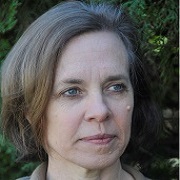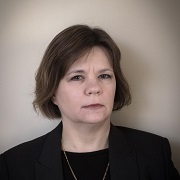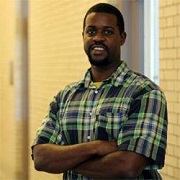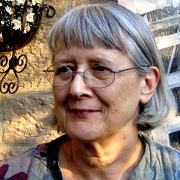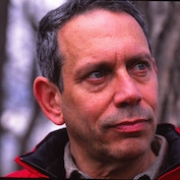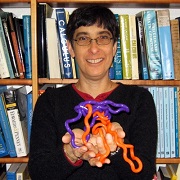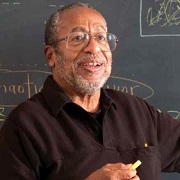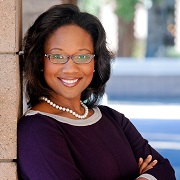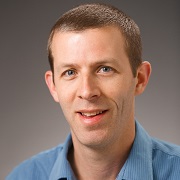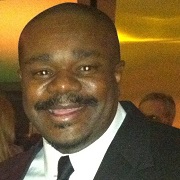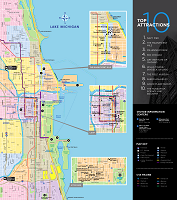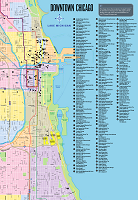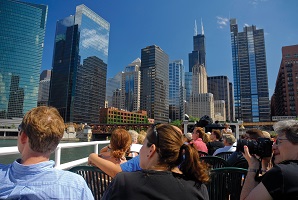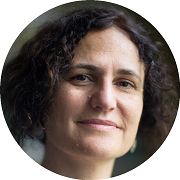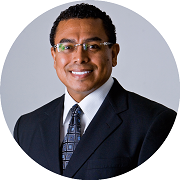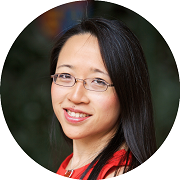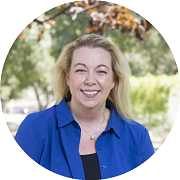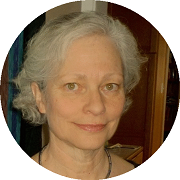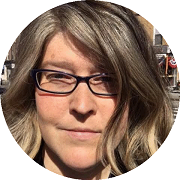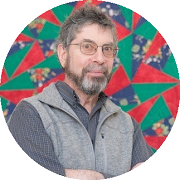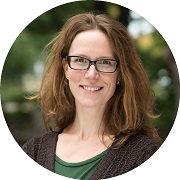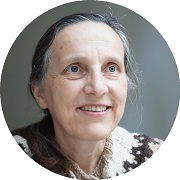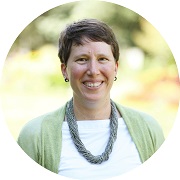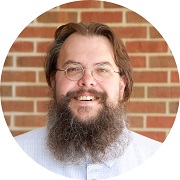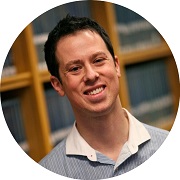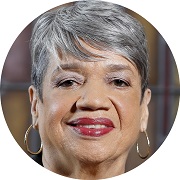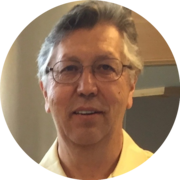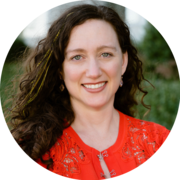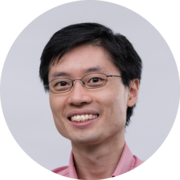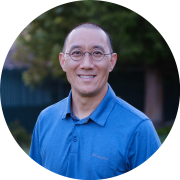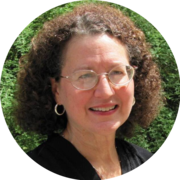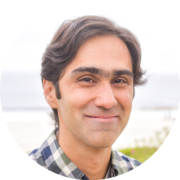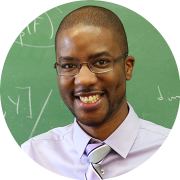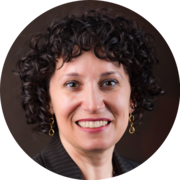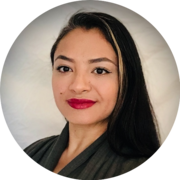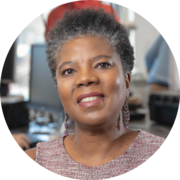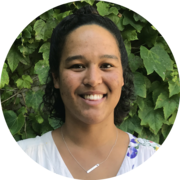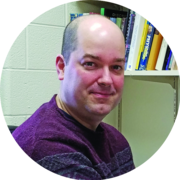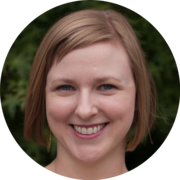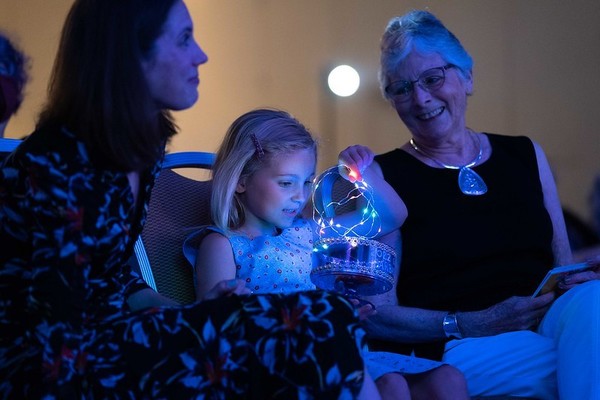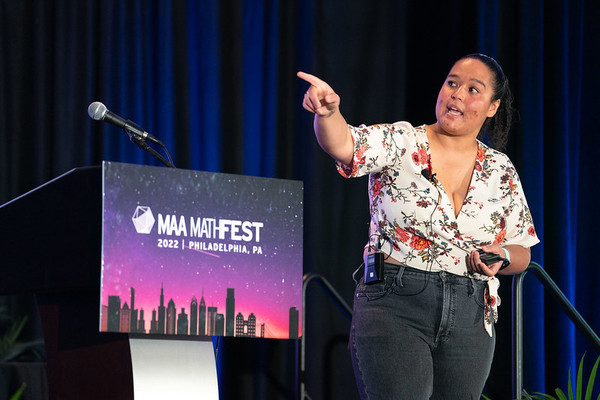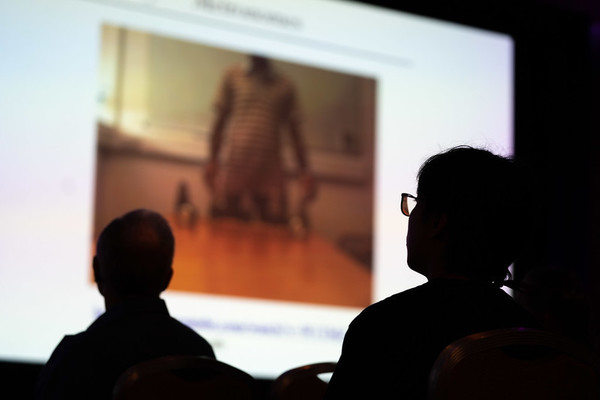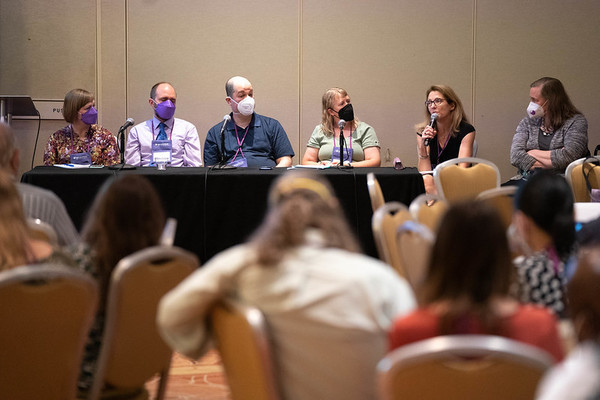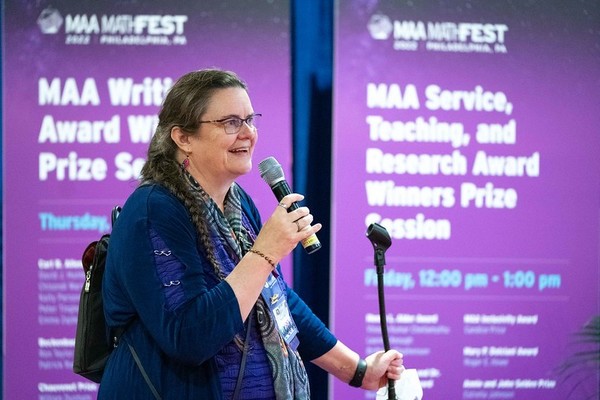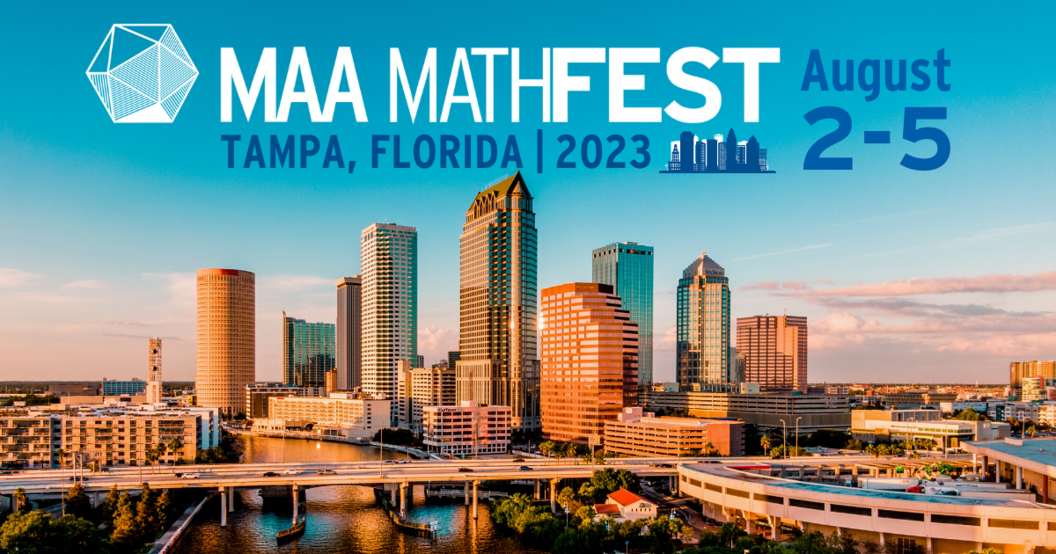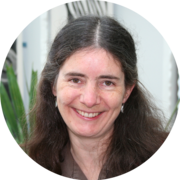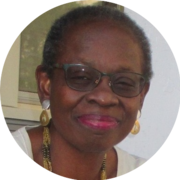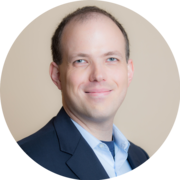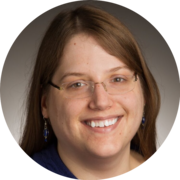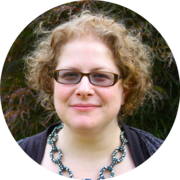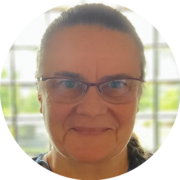Tuesday, August 4
Registration
3:00 PM – 7:00 PM, Marriott Wardman Park, Registration 1/2
Wednesday, August 5
Registration
7:00 AM – 7:00 PM, Marriott Wardman Park, Registration 1/2
Invited Address
MAA Centennial Lecture 1
Replicators, Transformers, and Robot Swarms: Science Fiction through Geometric Algorithms
8:20 AM – 9:20 AM, Marriott Wardman Park, Salon 2/3
Erik Demaine, Massachusetts Institute of Technology
Invited Address
Earle Raymond Hedrick Lecture Series
Hedrick Lecture 1
9:30 AM – 10:20 AM, Marriott Wardman Park, Salon 2/3
Karen Smith, University of Michigan
Invited Address
MAA Centennial Lecture 2
Network Science: From the Online World to Cancer Genomics
10:30 AM – 11:20 AM, Marriott Wardman Park, Salon 2/3
Jennifer Chayes, Microsoft Research
Themed Contributed Paper Session
TCPS#1: The History and Philosophy of Mathematics Part A – History of Mathematics
10:30 AM – 11:55 AM, Marriott Wardman Park, Washington 4
Ellipsographs: Drawing Ellipses and the Devices in the Smithsonian Collections
10:30 AM – 10:55 AM
Amy Shell-Gellasch, Montgomery College
Charter Members of the MAA and the Material Culture of American Mathematics
11:00 AM – 11:25 AM
Peggy A. Kidwell, Smithsonian Institution
History of Mathematics in Washington, DC
11:30 AM – 11:55 AM
Florence Fasanelli, MAA
Themed Contributed Paper Session
TCPS#1: The History and Philosophy of Mathematics Part B – History of Mathematics
10:30 AM – 11:55 AM, Marriott Wardman Park, Washington 5
Eisenhower, the Binomial Theorem, and the $64,000 Question
10:30 AM – 10:55 AM
Cathleen O’Neil, Johnson County Community College
John Horton Conway: Certainly a Piece of History
11:00 AM – 11:25 AM
Siobhan Roberts, Freelance Writer, Math & Science Journalist, Biographer
A Pair of Early MAA Presidents = A Pair of Mathematics Historians: Florian Cajori and David Eugene Smith
11:30 AM – 11:55 AM
Eileen Donoghue, City University of New York/CSI
Other Mathematical Session
Project NExT Lecture
Reducing Stereotype Threat in the Mathematics Classroom
11:00 AM – 11:50 AM, Marriott Wardman Park, Salon 1
Catherine Good, Baruch College, City University of New York
Invited Address
MAA Chan Stanek Lecture for Students
Seventy-Five Years of MAA Mathematics Competitions
1:00 PM – 1:50 PM, Marriott Wardman Park, Salon 2/3
Joseph Gallian, University of Minnesota Duluth
Themed Contributed Paper Session
TCPS#20: Evidence-Based Approaches to the Mathematical Preparation of Secondary Teachers
1:00 PM – 1:55 PM, Marriott Wardman Park, Washington 1
Lesson Study: A Capstone Experience to Address the Recommendations of the MET II Document
1:00 PM – 1:15 PM
Connie Yarema, Abilene Christian University
David Hendricks, Abilene Christian University
Focusing on Mathematical Arguments
1:20 PM – 1:35 PM
AnnaMarie Conner, University of Georgia
Laura Singletary, Lee University
Investing the Preparation of Teachers of Mathematics: The Influence of Content Knowledge on Novice Teaching
1:40 PM – 1:55 PM
Allyson Hallman-Thrasher, Ohio University
Jeff Connor, Ohio University
Derek J. Sturgill, Ohio University
Panel Session
Panel 7. Implementing the 2015 CUPM Curriculum Guide
1:00 PM – 2:20 PM, Marriott Wardman Park, Delaware A
Workshop
What’s the Story? A Graduate Student Workshop on Formulating a Research Presentation for a General Audience
1:00 PM – 2:20 PM, Marriott Wardman Park, Maryland C
Themed Contributed Paper Session
TCPS#7: Financial Mathematics
1:20 PM – 2:35 PM, Marriott Wardman Park, Washington 6
Insurance and Financial Investment Strategy under a Stochastic Process Model
1:20 PM – 1:35 PM
Wanwan Huang, Roosevelt University
Social Security Benefit: Now or Later?
1:40 PM – 1:55 PM
Amanda Mummert, Washington & Jefferson College
Katie Linthicum, Washington & Jefferson College
Kadie Clancy, Washington & Jefferson College
An Undergraduate Research Experience in Financial Mathematics
2:00 PM – 2:15 PM
Jeong-Mi Yoon, UH-Downtown
Actuarial Present Value: Calculations for Two Parametric Models
2:20 PM – 2:35 PM
Veera Holdai, Salisbury University
Barbara Wainwright, Salisbury University
General Contributed Paper Session
Teaching or Learning Introductory Mathematics Part A
1:00 PM – 2:55 PM, Marriott Wardman Park, Maryland B
Exploring Probability Using The Settlers of Catan
1:00 PM – 1:10 PM
Jathan Austin, Salisbury University
Susanna Molitoris Miller, Kennesaw State University
Estimating the Number of Extraterrestrial Civilizations in a Statistics Class
1:15 PM – 1:25 PM
Alexander G. Atwood, Suffolk County Community College
Elementary Statistics using Facebook
1:30 PM – 1:40 PM
Krishna Kaphle, University of Maine at Fort Kent
Experiences and Experiments in Implementing a Flipped Classroom Design in an Introductory Statistics Course
1:45 PM – 1:55 PM
William J. Heuett, Marymount University
Integrating Worked Examples into a Flipped College Algebra Classroom
2:00 PM – 2:10 PM
Tyrone Washington, Millersville University
Collins Math Magic Number Blocks and the Wobble-Square Method of Multiplication
2:15 PM – 2:25 PM
Dennis G. Collins, UPR-Mayaguez
Glenn H. Collins
Promoting Student Understanding of Properties of Logarithms
2:30 PM – 2:40 PM
Erin R. Moss, Millersville University of Pennsylvania
Applications of R to Introductory and Intermediate Statistics
2:45 PM – 2:55 PM
Leon Kaganovskiy, Touro College Brooklyn Campus
Themed Contributed Paper Session
TCPS#1: The History and Philosophy of Mathematics Part C – History and Philosophy of Mathematics
1:00 PM – 2:55 PM, Marriott Wardman Park, Washington 4
Doing Arithmetic in Medieval Europe
1:00 PM – 1:25 PM
Chuck Lindsey, Florida Gulf Coast University
Imagination and Reading the Third Dimension in Early Modern Geometry
1:30 PM – 1:55 PM
Travis D. Williams, University of Rhode Island
The Arc Rampant in 1673: An Early Episode in the History of Projective Geometry
2:00 PM – 2:25 PM
Christopher Baltus, SUNY Oswego
William Brouncker’s Rectification of the Semi-Cubical Parabola
2:30 PM – 2:55 PM
Andrew Leahy, Knox College
Themed Contributed Paper Session
TCPS#21: Show Me Geometry: Geometry Software and Tablet Demonstrations
1:00 PM – 2:55 PM, Marriott Wardman Park, Virginia C
Investigation of Geometric Theorems Using Geometer’s Sketchpad
1:00 PM – 1:15 PM
Nora Strasser, Friends University
Active Exploration of Desargues’ Theorem and Projective Geometry
1:20 PM – 1:35 PM
Michael Hvidsten, Gustavus Adolphus College
The Poincaré Disk Model in GeoGebra
1:40 PM – 1:55 PM
Martha Byrne, Earlham College
GeoGebra and Hyperbolic Geometry
2:00 PM – 2:15 PM
Violeta Vasilevska, Utah Valley University
Math on a Sphere: an Interactive Programming System for Spherical Geometry
2:20 PM – 2:35 PM
Michael Eisenberg, University of Colorado
Hilary Peddicord, National Oceanic and Atmospheric Administration
Sherry Hsi, Lawrence Hall of Science, Berkeley
Using A Dynamic Software Program to Develop Geometric Constructions
2:40 PM – 2:55 PM
Laura Singletary, Lee University
Minicourse
2. The Mathematics of Games and Gambling Part A
1:00 PM – 3:00 PM, Omni Shoreham Hotel, Hampton Room
Minicourse
4. Recruiting Students to Take More Mathematics Courses and to be Mathematics Majors Part A
1:00 PM – 3:00 PM, Omni Shoreham Hotel, Calvert Room
Themed Contributed Paper Session
TCPS#16: Curriculum Development to Support First Year General Education Mathematics Students
1:00 PM – 3:35 PM, Marriott Wardman Park, Washington 3
Redesigning a Liberal Arts Math Course for Student Performance
1:00 PM – 1:15 PM
Crystal Lorch, Ball State University
John Lorch, Ball State University
Design and Implementation of a Quantitative Literacy Course at a Large Research Institution
1:20 PM – 1:35 PM
Vince Melfi, Michigan State University
Dave Bramer, Michigan State University
Jeff Craig, Michigan State University
Richard A. Edwards, Michigan State University
Andrew Krause, Michigan State University
Amanda Lorenz, Michigan State University
Just Enough Algebra — Or How Teaching Interesting, Useful Algebra in Applied Contexts Incorporating Active Learning Led to Higher Student Engagement and Success
1:40 PM – 1:55 PM
Suzanne I. Dorée, Augsburg College
System-wide Co-requisite Pedagogical Approaches for Learning Support Mathematics Students
2:00 PM – 2:15 PM
Minsu Kim, University of North Georgia
Eliminating Pre-Foundational and Comprehensively Redesigning First Year General Education Mathematics Courses at Trinity Washington University
2:20 PM – 2:35 PM
Kent Kraft, Trinity Washington University
Reorganization and Innovation in First Year General Education Mathematics Courses
2:40 PM – 2:55 PM
Grace E. Cook, Bloomfield College
Michael Schiro, Bloomfield College
Kevin Kline, Bloomfield College
Alternative Pathway for General Education Mathematics Students
3:00 PM – 3:15 PM
Rachel M. Bates, Redlands Community College
Building Learning Communities for Students and Instructors in Introductory and Intermediate Algebra
3:20 PM – 3:35 PM
Janet Nichols, Colorado State University – Pueblo
General Contributed Paper Session
Algebra and Linear Algebra
1:00 PM – 3:40 PM, Marriott Wardman Park, Virginia B
Linear Algebra and Forensics
1:00 PM – 1:10 PM
Donna Beers, Simmons College
Catherine Crawford, Elmhurst College
New Algorithms for Solving a System of Linear Equations
1:15 PM – 1:25 PM
Michael F. Zimmer, Teradata, Inc
New Canonical Forms for Matrices Over a Principal Ideal Domain
1:30 PM – 1:40 PM
Peter M. Joyce, CCBC
On the Structure of Generalized Symmetric Spaces of the Special Linear and General Linear Groups of Degree 2 Over Finite Fields
1:45 PM – 1:55 PM
Jennifer Schaefer, Dickinson College
The Index of a Numerical Semigroup in Four Generators
2:00 PM – 2:10 PM
Bernadette Boyle, Sacred Heart University
The Space of Biorders on Some Solvable Groups
2:30 PM – 2:40 PM
Kelli Karcher, Virginia Polytechnic Institute and State University
Polynomials, Discriminants, and Root Counting in Number Fields
2:45 PM – 2:55 PM
Chad Awtrey, Elon University
Can this Polynomial be Factored?
3:15 PM – 3:25 PM
Gary Brookfield, California State University, Los Angeles
Valuation Derived from Graded Ring and Module and Krull Dimension Properties
3:30 PM – 3:40 PM
Mohammad Hassan Anjom Shoa, University of Birjand
Mohammad Hossein Hosseinie, University of Birjand
Invited Session
MAA Invited Paper Session: The Non-Traditional “Traditional NSA Mathematician”
1:00 PM – 3:45 PM, Marriott Wardman Park, Delaware B
The Coming of Enigma
1:00 PM – 1:30 PM
David Perry, National Security Agency
Public Key Cryptography: From Abelian Groups to Yellow Padlocks in 30 Minutes Flat
1:45 PM – 2:15 PM
David Fu, National Security Agency
Extending Pairwise Element Similarity to Set Similarity Efficiently
2:30 PM – 3:00 PM
Steve Knox, National Security Agency
Teaching Computers to See
3:15 PM – 3:45 PM
Christine Edwards, National Security Agency
Invited Session
MAA Invited Paper Session: Generations of Monthly Gems
1:00 PM – 3:50 PM, Marriott Wardman Park, Salon 1
1894 – 1919
1:00 PM – 1:20 PM
Karen Parshall, University of Virginia
1920 – 1939
1:30 PM – 1:50 PM
John Stillwell, University of San Francisco
1940 – 1959
2:00 PM – 2:20 PM
Ron Graham, University of California at San Diego
1960 – 1979
2:30 PM – 2:50 PM
Bob Devaney, Boston University
1980 – 1999
3:00 PM – 3:20 PM
Paul Zorn, St. Olaf College
2000 – 2015
3:30 PM – 3:50 PM
Rebecca Goldin, George Mason University
Themed Contributed Paper Session
TCPS#6: Mathematics and Art Part A
1:00 PM – 4:55 PM, Marriott Wardman Park, Maryland A
A Kaleidoscopic Journey
1:00 PM – 1:15 PM
Jeff Johannes, SUNY Geneseo
Artistic Patterns on Triply Periodic Polyhedra
1:20 PM – 1:35 PM
Douglas Dunham, University of Minnesota – Duluth
Maps of Strange Worlds: Beyond the Four-Color Theorem
1:40 PM – 1:55 PM
Susan Goldstine, St. Mary’s College of Maryland
Virtual Bumblebees
2:00 PM – 2:15 PM
James P. Howard, University of Maryland University College
Surprises from Iterating Discontinuous Functions
2:20 PM – 2:35 PM
Brian Heinold, Mount St. Mary’s University
The Many Lessons in Fractals
2:40 PM – 2:55 PM
Lisa A. Oberbroeckling, Loyola University Maryland
Parametric Equations at the Circus: Trochoids and Poi Flowers
3:00 PM – 3:15 PM
Eleanor Farrington, Massachusetts Maritime Academy
Modeling the Mathematical: Man Ray, Equational Mimesis, and Kinesthetic Learning
3:20 PM – 3:35 PM
Steve Zides, Wofford College
Pythagoras to Secor: Generalized Keyboards and the Miracle Temperament
3:40 PM – 3:55 PM
Anil Venkatesh, Ferris State University
Mathematics and Poetry: The Sweetest Noise
4:00 PM – 4:15 PM
Randall E. Cone, Salisbury University
Differential Equations in Music, Dance, and the Visual Arts
4:20 PM – 4:35 PM
Lorelei Koss, Dickinson College
Counting with Your Toes!
4:40 PM – 4:55 PM
Julian Chan, Weber State
Themed Contributed Paper Session
TCPS#12: Improving Undergraduate Math Writing
1:00 PM – 5:15 PM, Marriott Wardman Park, Virginia A
Creating and Assessing Writing Prompts in Calculus and Below
1:00 PM – 1:15 PM
Garry Johns, Saginaw Valley State University
I Need Some Focus! Helping Calculus Students Navigate Mathematical Writing
1:20 PM – 1:35 PM
David Clark, Grand Valley State University
Student Engagement and Learning through Reading and Writing in Differential Equations
1:40 PM – 1:55 PM
Michael C. Barg, Niagara University
Using Writing in Introductory Statistics to Enhance Understanding
2:00 PM – 2:15 PM
Tonya Adkins, Johnson & Wales University
Writing with Critical Thinking and Values for Effective Problem Solving
2:20 PM – 2:35 PM
Jacci White, Saint Leo University
Monika Kiss, Saint Leo University
Brian Camp, Saint Leo University
Definitions as Proof Blueprints
2:40 PM – 2:55 PM
Andrew Cooper, North Carolina State University
Product and Process: Writing Portfolios and Feedback in Introduction to Proof Techniques
3:00 PM – 3:15 PM
May Mei, Denison University
Revised Writing Across the Math Major
3:20 PM – 3:35 PM
Jacqueline Anderson, Bridgewater State University
Typesetting Homework in LaTeX: Best Practices that Support Teaching and Learning in Post-Calculus
3:40 PM – 3:55 PM
James Quinlan, University of New England
Revising for Clarity
4:00 PM – 4:15 PM
Jeffrey Clark, Elon University
Why Induction Is Like Ice Cream: Writing About Analogies in Discrete Mathematics Courses
4:20 PM – 4:35 PM
Joshua Holden, Rose-Hulman Institute of Technology
Emphasizing Mathematical Writing in On-line Courses
4:40 PM – 4:55 PM
Byungik Kahng, University of North Texas at Dallas
Teaching Mathematical Proof Writing Skills in a General Education Course: Graph Theory Algorithms and Color-Coding
5:00 PM – 5:15 PM
Robin L. Blankenship, Morehead State University
Themed Contributed Paper Session
TCPS#10: The Scholarship of Teaching and Learning in Collegiate Mathematics
1:00 PM – 5:35 PM, Marriott Wardman Park, Washington 2
Comparing Oral and Traditional Assessments in Math Content Courses for Pre-Service Elementary Teachers
1:00 PM – 1:15 PM
Daniel Visscher, University of Michigan
Nina White, University of Michigan
Assessing the Effects of Interactive Technology on Concept Retention in Precalculus
1:20 PM – 1:35 PM
Doug Ensley, Shippensburg University
Lea Adams, Shippensburg University
Barbara Kaskosz, University of Rhode Island
Curing the High DFW Rate in First Year Calculus
1:40 PM – 1:55 PM
Adam Childers, Roanoke College
Jan Minton, Roanoke College
Hannah Robbins, Roanoke College
Kristin Emrich, Roanoke College
David Taylor, Roanoke College
Increasing Student Success in the Calculus Sequence
2:00 PM – 2:15 PM
Mary Shepherd, Northwest Missouri State University
Investigating Student Learning Gains from Content Videos in a Flipped Calculus I Course
2:20 PM – 2:35 PM
John (Zig) Siegfried, James Madison University
Cassie Williams, James Madison University
Does Calculus Help with Algebra?
2:40 PM – 2:55 PM
Cory Johnson, California State University, San Bernardino
Introducing Technology to a Vector Calculus Course
3:00 PM – 3:15 PM
Tyler Kloefkorn, University of Arizona
Engaged Learning Through Writing: A Faculty Development Project
3:20 PM – 3:35 PM
Mary E. Pilgrim, Colorado State University
Sue Doe, Colorado State University
Hilary Freeman, Colorado State University
Kate Kiefer, Colorado State University
From Scratch to Proof: Preliminary Report
3:40 PM – 3:55 PM
Margaret L. Morrow, SUNY Plattsburgh
SoTLE: Assessing the Effectiveness of Moodle Glossaries
4:00 PM – 4:15 PM
Jill E. Thomley, Appalachian State University
Sarah J. Greenwald, Appalachian State University
The Emporium Teaching Model and Its Effect on Students’ Conceptions of Mathematics, Metacognitive Awareness and Course Performance
4:20 PM – 4:35 PM
Yevgeniya Rivers, University of New Haven
Joshua Goss, University of New Haven
Student Beliefs on Math Ability and Sense of Belonging to a Math Community
4:40 PM – 4:55 PM
Frank Hassebrock, Denison University
Lewis Ludwig, Denison University
Assessing the Cognitive Levels of Exam Problems in Mathematics: A Comparison Across Years
5:00 PM – 5:15 PM
Sandra M. Merchant, University of British Columbia
Wesley Maciejewski, University of Auckland
Development of Students’ Bayesian Reasoning Skill
5:20 PM – 5:35 PM
Frank Wang, LaGuardia Community College, CUNY
Themed Contributed Paper Session
TCPS#1: The History and Philosophy of Mathematics Part D – History and Philosophy of Mathematics
1:30 PM – 3:55 PM, Marriott Wardman Park, Washington 5
Inspiration for Elementary Mathematics Descriptions from a “Heritage” Reading (in the sense of Grattan-Guinness) of On the Nonexistent by Gorgias
1:30 PM – 1:55 PM
Ann L. von Mehren, Arcadia University and University of Houston
Going to the Source
2:00 PM – 2:25 PM
Thomas Q. Sibley, St. John’s University, College of St. Benedict
Rope Geometry of Ancient India in the Classroom
2:30 PM – 2:55 PM
Cynthia J. Huffman, Pittsburg State University
Scott V. Thuong, Pittsburg State University
Getting to the Root of the Problem
3:00 PM – 3:25 PM
Steven J. Tedford, Misericordia University
Reenactment of the Calculus Controversy: Newton vs Leibniz
3:30 PM – 3:55 PM
Abraham Ayebo, North Dakota State University
Other Mathematical Session
Special Panel Session on Science Policy
2:30 PM – 4:00 PM, Marriott Wardman Park, Salon 2/3
Panel Session
Panel 6. The Updated AP Calculus AB/BC courses: What Does This Mean For You?
2:35 PM – 3:55 PM, Marriott Wardman Park, Delaware A
Other Mathematical Session
MAA Section Officers Meeting
3:00 PM – 5:00 PM, Marriott Wardman Park, Wilson A/B/C
Themed Contributed Paper Session
TCPS#1: The History and Philosophy of Mathematics Part E – The Mathematics of Euler
3:30 PM – 5:55 PM, Marriott Wardman Park, Washington 4
Euler and Phonetics: The Untold Story of the Mathematics of Language
3:30 PM – 3:55 PM
Dominic Klyve, Central Washington University
Olivia Hirschey, Central Washington University
Leonhard Euler: The Final Decade 1773 to October 1783
4:00 PM – 4:25 PM
Ronald S. Calinger, Catholic University of America
Euler’s Method for Computing the Movement of a Mortar Bomb
4:30 PM – 4:55 PM
William W. Hackborn, University of Alberta
Euler on L’Hôpital’s Analyse
5:00 PM – 5:25 PM
Robert E. Bradley, Adelphi University
Euler’s OTHER Constant
5:30 PM – 5:55 PM
Jonathan Martin, Purdue University
Andy Martin, Kentucky State University
Poster Session
Highlights from AWM Chapters
3:30 PM – 5:00 PM, Marriott Wardman Park, Marriott Foyer
Minicourse
3. Heavenly Mathematics: The Forgotten Art of Spherical Trigonometry Part A
3:30 PM – 5:30 PM, Omni Shoreham Hotel, Hampton Room
Minicourse
7. Teaching Mathematics with Bead Crochet Part A
3:30 PM – 5:30 PM, Omni Shoreham Hotel, Calvert Room
Panel Session
Panel 4. A Discussion of the MAA/NCTM Joint Position Statement on Calculus
4:10 PM – 5:30 PM, Marriott Wardman Park, Delaware A
Panel Session
Panel 11. Congratulations on Getting Tenure! Now What?
4:10 PM – 5:30 PM, Marriott Wardman Park, Washington 6
Undergraduate Student Activity
Radical Dash
4:30 PM – 5:30 PM, Marriott Wardman Park, Salon 1
Social Event
Centennial Reception
5:00 PM – 7:00 PM, Marriott Wardman Park, Exhibit Hall A
Social Event
Mathematical Carnival at the Centennial Reception
5:00 PM – 7:00 PM, Marriott Wardman Park, Exhibit Hall A
Social Event
Cirque de Mathematiques
7:00 PM – 9:00 PM, Marriott Wardman Park, Salon 2/3
Thursday, August 6
Registration
8:00 AM – 5:00 PM, Marriott Wardman Park, Registration 1/2
General Contributed Paper Session
Mentoring and Outreach
8:15 AM – 11:10 AM, Marriott Wardman Park, Maryland B
What’s It Like to Be Editor-in-Chief of the Notices of the American Mathematical Society?
8:15 AM – 8:25 AM
Frank Morgan, Williams College
Upper Elementary Outreach Mobius Bands and Polyhedra
8:30 AM – 8:40 AM
Beth Schaubroeck, United States Air Force Academy
“Energizing” Students
8:45 AM – 8:55 AM
Elizabeth Yanik, Emporia State University
Girls in Science: Over 15 Years of STEM Outreach for Middle School Girls
9:00 AM – 9:10 AM
Susan Kelly, University of Wisconsin – La Crosse
Expanding Your Horizons at James Madison University: Math and Science Outreach to Middle and High School Girls
9:15 AM – 9:25 AM
Elizabeth Arnold, James Madison University
Katie S. Quertermous, James Madison University
Rural STEM Model
9:30 AM – 9:40 AM
Elizabeth Mauch, Bloomsburg University
How to Hook Pre-Service Teachers on Professional Development
9:45 AM – 9:55 AM
Pari Ford, University of Nebraska at Kearney
Amy Nebesniak, University of Nebraska at Kearney
Impact of 2015 National Math Festival on Undergraduate Mathematics Students
10:00 AM – 10:10 AM
Alice E. Petillo, Marymount University
Nicole Ferree, Marymount University
Increasing Diversity in the Classrooms: A Path towards Inclusion in Mathematics
10:15 AM – 10:25 AM
Li-Sheng Tseng, University of California, Irvine
Alessandra Pantano, University of California, Irvine
Native American-based Mathematics Materials for Undergraduate Courses
10:30 AM – 10:40 AM
Charles P. Funkhouser, California State University Fullerton
Miles R. Pfahl, Turtle Mountain Community College
Harriet Edwards, California State University Fullerton
Creating a Meaningful Undergraduate Research Project
10:45 AM – 10:55 AM
Brandon Samples, Georgia College & State University
Supporting the Success of Women Faculty through an NSF ADVANCE Grant: Looking Back, Moving Forward
11:00 AM – 11:10 AM
Jenna Carpenter, Louisiana Tech University
D. P. O’Neal, Louisiana Tech University
Invited Address
MAA Centennial Lecture 3
Mathematics for Art Investigation
8:30 AM – 9:20 AM, Marriott Wardman Park, Salon 2/3
Ingrid Daubechies, Duke University
Undergraduate Student Activity
MAA Student Paper Session #1
8:30 AM – 10:25 AM, Marriott Wardman Park, Virginia A
MAA Student Paper Session #2
8:30 AM – 10:25 AM, Marriott Wardman Park, Virginia B
MAA Student Paper Session #3
8:30 AM – 10:25 AM, Marriott Wardman Park, Virginia C
MAA Student Paper Session #4
8:30 AM – 10:25 AM, Marriott Wardman Park, Wilson A
MAA Student Paper Session #5
8:30 AM – 10:25 AM, Marriott Wardman Park, Wilson B
MAA Student Paper Session #6
8:30 AM – 10:25 AM, Marriott Wardman Park, Wilson C
Undergraduate Student Activity
PME Student Paper Session #11
8:30 AM – 10:25 AM, Marriott Wardman Park, Delaware B
Themed Contributed Paper Session
TCPS#1: The History and Philosophy of Mathematics Part F – Special Session in Memory of Jackie Stedall
8:30 AM – 11:25 AM, Marriott Wardman Park, Washington 4
Sylvester’s Amphigenous Surface
8:30 AM – 8:55 AM
June Barrow-Green, The Open University
Jackie Stedall and the Mathematics of Thomas Harriot
9:00 AM – 9:25 AM
Janet L. Beery, University of Redlands
The Construction of Map Projections in the Works of Lambert and Euler
9:30 AM – 9:55 AM
Rosanna Cretney, The Open University
Soviet Views of Early (English) Algebra
10:00 AM – 10:25 AM
Christopher Hollings, University of Oxford
Bolzano’s Measurable Numbers: Are They Real?
10:30 AM – 10:55 AM
Steve Russ, University of Warwick
Katerina Trlifajova, Centre for Theoretical Studies, Prague
The BSHM, 1971-2015
11:00 AM – 11:25 AM
Robin J. Wilson, Oxford University, UK
Themed Contributed Paper Session
TCPS#11: Cultivating Critical Thinking through Active Learning in Mathematics Part A
8:30 AM – 11:25 AM, Marriott Wardman Park, Washington 1
Teaching Elements of Effective Thinking Through Mathematics
8:30 AM – 8:45 AM
Michael Starbird, The University of Texas at Austin
Fostering Critical Thinking in a Liberal Arts Mathematics Course through Graph Theory
8:50 AM – 9:05 AM
Elizabeth S. Wolf, Saint Mary’s College
Creative, Critical and Correct: Achieving Common Objectives in an Introductory Proofs Course
9:10 AM – 9:25 AM
Kayla B. Dwelle, Ouachita Baptist University
Active Learning in Linear Algebra Through Preview and In-class Activities
9:30 AM – 9:45 AM
Feryal Alayont, Grand Valley State University
Steven Schlicker, Grand Valley State University
RAMScholars: Increasing Student Engagement in Learning Calculus Through PBL, Oral Assessments, and Writing
9:50 AM – 10:05 AM
Jessica Gehrtz, Colorado State University
Mary E. Pilgrim, Colorado State University
Beginning an Emerging Scholar’s Program in Calculus II
10:10 AM – 10:25 AM
Jacqueline Jensen-Vallin, Lamar University
Wonders of 11 Stars: Mathematical Cultivations through Paper Folding
10:30 AM – 10:45 AM
Duk-Hyung Lee, Asbury University
Teaching Validity and Soundness of Arguments Using the Board Game ‘The Resistance’
10:50 AM – 11:05 AM
Derek Thompson, Taylor University
Puzzles + Games = Mathematical Thinking
11:10 AM – 11:25 AM
Edmund A. Lamagna, University of Rhode Island
General Contributed Paper Session
Graph Theory
8:30 AM – 10:55 AM, Marriott Wardman Park, Washington 3
Social Implications of the Königsberg Bridge Problem
8:30 AM – 8:40 AM
Paul J. Janiczek, Virginia Military Institute
Coprime and Prime Labelings of Graphs
8:45 AM – 8:55 AM
Jonelle Hook, Mount St. Mary’s University
Propagation Time on Directed Graphs
9:00 AM – 9:10 AM
Nathan Warnberg, University of Wisconsin-La Crosse
Counting Loops and Paths: The Monoid of a Directed Graph
9:15 AM – 9:25 AM
James Hamblin, Shippensburg University
Lance Bryant, Shippensburg University
The Isoperimetric Constant of a Paley Graph
9:30 AM – 9:40 AM
Anthony Shaheen, CSU Los Angeles
Two Intersection Sets and Paley Graphs
9:45 AM – 9:55 AM
Liz Lane-Harvard, University of Central Oklahoma
Generating Combinatorial Identities via Walk Counting
10:00 AM – 10:10 AM
Nathan Moyer, Whitworth Univesity
Book Thickness of Zero-Divisor Graphs of Commutative Rings
10:15 AM – 10:25 AM
Shannon Overbay, Gonzaga University
DI-Pathological Conjectures and Results
10:45 AM – 10:55 AM
John Asplund, Dalton State College
Joe Chaffee
James Hammer, Ceder Crest College
Themed Contributed Paper Session
TCPS#6: Mathematics and Art Part B
8:50 AM – 11:25 AM, Marriott Wardman Park, Maryland A
Geometry in Paintings: Where Two Dimensional Becomes Three Dimensional
8:50 AM – 9:05 AM
Blair Lewis, Weber State University
Geometric Islamic Star Patterns of Carved Mamluk Domes
9:10 AM – 9:25 AM
Lynn Bodner, Monmouth University
Geometry in 18th Century Japan: Exploring and Creating Sangaku
9:30 AM – 9:45 AM
David Clark, Randoph-Macon College
Randomness and Structure in Computer-generated Art and Design
9:50 AM – 10:05 AM
Vincent J. Matsko, University of San Francisco
“iFlakes”: Interactive Line Designs for iOS
10:10 AM – 10:25 AM
James E. Mihalisin, JedMDesigns
Ten Years of Student Art in a Math Class
10:30 AM – 10:45 AM
Bryan Clair, Saint Louis University
Art of Teaching Mathematics
10:50 AM – 11:05 AM
Radmila Sazdanovic, North Carolina State University
Andrew Cooper, North Carolina State University
Math = Art (or: How to Enhance Threaded Discussions)
11:10 AM – 11:25 AM
Debra M. Kean, DeVry University
MAA MathFest 2015 Exhibit Hall
9:00 AM – 5:00 PM, Marriott Wardman Park, Exhibit Hall
Undergraduate Student Activity
Student Hospitality Center
9:00 AM – 5:00 PM, Marriott Wardman Park, Exhibit Hall
General Contributed Paper Session
History or Philosophy of Mathematics
9:15 AM – 11:25 AM, Marriott Wardman Park, Salon A, Balcony A
More of 1915: Why is Mathematics Continually Deemed So Essential to Science?
9:15 AM – 9:25 AM
G. Arthur Mihram, Princeton, NJ
Danielle Mihram, University of Southern California
The Derivative Productions of Classical Heat Analyses
9:30 AM – 9:40 AM
Shigeru Masuda, Kyoto University
Romance in Many Dimensions
9:45 AM – 9:55 AM
Tereza Bartlova, Charles University in Prague
An Animation of the Maya Tzolkin Calendar
10:00 AM – 10:10 AM
Megan R. Rehm, Millersville University of Pennsylvania
Cynthia E. Taylor, Millersville University of Pennsylvania
Ximena Catepillan, Millersville University of Pennsylvania
On Mathematical Reasoning and the Decision Problem
10:15 AM – 10:25 AM
Linda Becerra, University of Houston-Downtown
Ron Barnes, University of Houston-Downtown
History of Mathematics – The Illinois Connection
10:45 AM – 10:55 AM
Herbert Kasube, Bradley University
Mathematics, Baseball and Shakespeare: What Do They Have in Common?
11:15 AM – 11:25 AM
Charlie Smith, Park University
General Contributed Paper Session
Teaching or Learning Calculus
9:15 AM – 11:25 AM, Marriott Wardman Park, Salon 1, Balcony B
Warmup Problems: How to Help Students Learn, Avoid Grading Homework, and Make All Your Dreams Come True
9:15 AM – 9:25 AM
Ryan Higginbottom, Washington & Jefferson College
The New Mathways Project’s STEM Prep Curriculum: Learning Outcomes & Example Lessons
9:30 AM – 9:40 AM
Frank Savina, Charles A Dana Center, University of Texas, Austin
Stuart Boersma, Central Washington University
High Impact Practices at UHD: Calculus I Teaching Circle
9:45 AM – 9:55 AM
Sergiy Koshkin, UH-Downtown
Ronald Barnes, UH-Downtown
Jeong-Mi Yoon, UH-Downtown
Ryan Pepper, UH-Downtown
Plamen Simeonov, UH-Downtown
Timothy Redl, UH-Downtown
Volodymyr Hrynkiv, UH-Downtown
Arati Pati, UH-Downtown
A Surprisingly Simple Integral
10:00 AM – 10:10 AM
Alan Levine, Franklin and Marshall College
Integration By the Wrong Parts
10:15 AM – 10:25 AM
William Kronholm, Whittier College
Integrating Ideas: A Calculus II Project
10:30 AM – 10:40 AM
Jonathan Hulgan, Oxford College of Emory University
Reflections on Using Mastery-Based Testing in a Calculus II Course
10:45 AM – 10:55 AM
Alyssa Armstrong, Wittenberg University
The Effects of Assignment Timing on Student Learning
11:00 AM – 11:10 AM
Emma Smith Zbarsky, Wentworth Institute of Technology
Integrating First-year Physics and Mathematics through Project-based Learning
11:15 AM – 11:25 AM
Randall Crist, Creighton University
Gintaras Duda, Creighton University
Invited Address
AMS-MAA Joint Invited Address
The Arithmetic of the Spheres
9:30 AM – 10:20 AM, Marriott Wardman Park, Salon 2/3
Jeffrey Lagarias, University of Michigan
Invited Address
MAA Centennial Lecture 4
The Role and Function of Mathematical Models in Interdisciplinary Mentorship through Research: Lessons from the World of Epidemics
10:30 AM – 11:20 AM, Marriott Wardman Park, Salon 2/3
Carlos Castillo-Chavez, Arizona State University
Other Mathematical Session
MAA Prize Session
11:30 AM – 12:15 PM, Marriott Wardman Park, Salon 2/3
Undergraduate Student Activity
Secrets of Mental Math
Arthur Benjamin, Harvey Mudd College
1:00 PM – 1:50 PM, Marriott Wardman Park, Salon 2/3
Panel Session
Panel 2. Applying for and Obtaining Grants
1:00 PM – 2:20 PM, Marriott Wardman Park, Salon 1
Workshop
USE Math: Undergraduate Sustainability Experiences in the Mathematics Classroom
1:00 PM – 2:20 PM, Marriott Wardman Park, Maryland C
Themed Contributed Paper Session
TCPS#1: The History and Philosophy of Mathematics Part G – History and Philosophy of Mathematics
1:00 PM – 2:25 PM, Marriott Wardman Park, Washington 4
Robert Patterson: American ‘Revolutionary’ Mathematician
1:00 PM – 1:25 PM
Richard DeCesare, Southern Connecticut State University
Lisbon: Mathematics, Engineering and Planning in the Eighteenth Century
1:30 PM – 1:55 PM
Maria Zack, Point Loma Nazarene University
Vera on the Foundations of Mathematics
2:00 PM – 2:25 PM
Alejandro R. Garciadiego, UNAM
TCPS#1: The History and Philosophy of Mathematics Part H – History and Philosophy of Mathematics
1:00 PM – 2:25 PM, Marriott Wardman Park, Washington 5
Yoshikatsu Sugiura: A Good Japanese Friend of Paul Dirac
1:00 PM – 1:25 PM
Michiyo Nakane, Nihon University Research Institute of Science and Technology
Ramanujan, Robin, Highly Composite Numbers, and the Riemann Hypothesis
1:30 PM – 1:55 PM
Jonathan Sondow, Independent Scholar
Jean-Louis Nicolas, University of Lyon, France
A Visit to the Vatican Library
2:00 PM – 2:25 PM
Matthew Haines, Augsburg College
Minicourse
1. The Hitchhiker’s Guide to Mathematics Part A
1:00 PM – 3:00 PM, Omni Shoreham Hotel, Hampton Room
Minicourse
6. Creating Flipped Learning Experiences in the College Mathematics Classroom Part A
1:00 PM – 3:00 PM, Omni Shoreham Hotel, Calvert Room
Themed Contributed Paper Session
TCPS#13: Successful STEM Programs for Elementary Education Majors
1:00 PM – 3:15 PM, Marriott Wardman Park, Washington 2
Lecturing Left on the Cutting Room Floor: A Video Project for Pre-service Teachers
1:00 PM – 1:15 PM
Matthew D. Zawodniak, University of Georgia
Examining the Features and Outcomes of a STEM-Focused Elementary Teacher Preparation Program
1:20 PM – 1:35 PM
Temple A. Walkowiak, North Carolina State University
Valerie N. Faulkner, North Carolina State University
Paola Sztajn, North Carolina State University
Calculus for Pre-Service Elementary Teachers
1:40 PM – 1:55 PM
Alina N. Duca, North Carolina State University
Karen Keene, North Carolina State University
Graduate Certificate in STEM Education
2:00 PM – 2:15 PM
Cynthia Orona, University of Arkansas
An Overview of a Successful Mathematics Minor in Elementary Math Teaching at PUC
2:20 PM – 2:35 PM
Diana Underwood, Purdue University Calumet
Catherine Murphy, Purdue University Calumet
The Pennsylvania Math Initiative: The First Three Years
2:40 PM – 2:55 PM
Andrew Baxter, Penn State University, University Park
Fran Arbaugh, Penn State University, University Park
George Andrews, Penn State University, University Park
Reflections on Twenty Years of Wheelock College’s Math/Science Majors for Prospective Elementary Teachers
3:00 PM – 3:15 PM
Debra K. Borkovitz, Wheelock College
Invited Session
AMS-MAA Invited Paper Session: The Arithmetic of the Spheres
1:00 PM – 3:50 PM, Marriott Wardman Park, Delaware A
The Apollonian Structure of Imaginary Quadratic Fields
1:00 PM – 1:20 PM
Katherine Stange, University of Colorado Boulder
Circles in the Sand
1:30 PM – 1:50 PM
Lionel Levine, Cornell University
Pythagoras Meets Euclid: A Euclidean Algorithm for Pythagorean Triples
2:00 PM – 2:20 PM
Dan Romik, University of California Davis
Dynamics of Apollonian Circle Packings
2:30 PM – 2:50 PM
Elena Fuchs, University of Illinois Urbana-Champaign
Variations on Apollonian Circle Packing Rules
3:00 PM – 3:20 PM
Steve Butler, Iowa State University
Geometry and Number Theory of Integral Sphere Packings
3:30 PM – 3:50 PM
Kei Nakamura, University of California Davis
Invited Session
MAA Invited Paper Session: Improving Access to Mathematical Modeling Research
1:00 PM – 4:20 PM, Marriott Wardman Park, Delaware B
Global Disease Monitoring and Forecasting with Wikipedia
1:00 PM – 1:25 PM
Sara Del Valle, Los Alamos National Laboratory
Engaging students in applied mathematics via experiential learning through research
1:30 PM – 1:55 PM
Sherry Towers, Arizona State University
Overcoming Epistemic Obstacles to Teaching Mathematical Modeling in Calculus
2:00 PM – 2:25 PM
Patrick Thompson, Arizona State University
Mathematical Modeling Experiences in Secondary Schools
2:30 PM – 2:55 PM
Kathleen R. Fowler, Clarkson University
Mathematics Education Commentary: At the Interface Between Applied Mathematics and Mathematics Education
3:00 PM – 3:25 PM
Carlos Castillo-Garsow, Eastern Washington University
Applied Mathematics Commentary: Math at Top Speed: The Role of Mathematical Modeling in Science and in My Personal Life
3:30 PM – 4:20 PM
Richard Tapia, Rice University
General Contributed Paper Session
Geometry
1:00 PM – 4:40 PM, Marriott Wardman Park, Salon 1, Balcony B
Exploring Mathematical Ideas through Origami
1:00 PM – 1:10 PM
Arsalan Wares, Valdosta State University
The Right Pascal’s Triangle
1:15 PM – 1:25 PM
Yaping Liu, Pittsburg State University
Generalizing the Law of Cosines
1:30 PM – 1:40 PM
Lee N. Collins, County College of Morris
Tom Osler, Rowan University
Perfect Heptagons and 13-Sided Triskaidecagons
1:45 PM – 1:55 PM
Genghmun Eng
How to Add Guards to an Art Gallery
2:00 PM – 2:10 PM
T. S. Michael, United States Naval Academy
Val Pinciu, United States Naval Academy
New Perspectives on Polygonal Area
2:15 PM – 2:25 PM
Owen D. Byer, Eastern Mennonite University
Area Bounds of Covers of Unit Arcs
2:30 PM – 2:40 PM
Libin Mou, Bradley University
What Isn’t an Ellipse?
2:45 PM – 2:55 PM
Alex Meadows, St. Mary’s College of Maryland
Casey Douglas, St. Mary’s College of Maryland
The Bounding Problem for Infra-Solvmanifolds
3:00 PM – 3:10 PM
Scott V. Thuong, Pittsburg State University
Nested Sequences of Triangles in Non-Euclidean Spaces
3:15 PM – 3:25 PM
Andrew Lazowski, Sacred Heart University
Excursions in Combinatorial Taxicab Geometry
3:30 PM – 3:40 PM
John Best, Summit University of Pennsylvania
Inequalities in Spherical Geometry: Ancient and Modern
3:45 PM – 3:55 PM
Marshall Whittlesey, California State University San Marcos
Angle-of-Parallelism Spectra in Non-Homogeneous Geometries
4:00 PM – 4:10 PM
J. Mealy, Austin College
Malin Pappas, Austin College
A New Theorem Concerning Isopivotal Cubics, Could it be the ‘Swiss Army Knife’ of Geometry?
4:15 PM – 4:25 PM
Ivan Zelich, Anglican Church Grammar School
Plane Geometry Construction of Gravity Field Mechanical Energy Curves
4:30 PM – 4:40 PM
Alexander L. Garron, Sand Box Geometry LLC
General Contributed Paper Session
Teaching or Learning Introductory Mathematics Part B
1:00 PM – 4:40 PM, Marriott Wardman Park, Maryland B
“Reverse Engineering” to Strengthen Critical Thinking for Pre-Service Teachers
1:00 PM – 1:10 PM
J. Lyn Miller, Slippery Rock University
An Algebra Course for Pre-Service Middle Level Teachers
1:15 PM – 1:25 PM
Dorothee J. Blum, Millersville University
Designing a General Education Mathematics Course in Linear Algebra
1:30 PM – 1:40 PM
David Hecker, St. Joseph’s University
Stephen Andrilli, La Salle University
Fractals, Linear Algebra, Python, and Sage: A Linear Algebra Course for Computer Science Majors
1:45 PM – 1:55 PM
Vincent J. Matsko, University of San Francisco
Project-Based Learning in First Year General Education Mathematics Courses
2:00 PM – 2:10 PM
Zeynep Teymuroglu, Rollins College
Problem Exists Between Keyboard and Chair: Filling in the Gaps in Online Homework
2:15 PM – 2:25 PM
Sara Malec, Hood College
Reflection Paper, Poster, and Presentation: A Unique Final Examination Experience for a Liberal Arts Mathematics Course
2:30 PM – 2:40 PM
Sarah L. Mabrouk, Framingham State University
Math and Civil Rights: An Interdisciplinary Reading Course
2:45 PM – 2:55 PM
Rachel Weir, Allegheny College
Teaching Strategies for Summer Math Courses
3:00 PM – 3:10 PM
Jeremiah Bartz, Francis Marion University
A Collaborative Partnership to Teach Mathematical Reasoning Using Computer Programming (CPR2)
3:15 PM – 3:25 PM
Cynthia L. Stenger, University of North Alabama
James A. Jerkins, University of North Alabama
Critical Thinking and Mathematical Habits of Mind
3:30 PM – 3:40 PM
Marshall Gordon, Park School of Baltimore
Developing Mathematical Authenticity, Maturity, and Aesthetic Experience in Pre-Calculus and Earlier Learners
3:45 PM – 3:55 PM
Deborah W. Devlin, Frostburg State University
G. Gerard Wojnar, Frostburg State University
Pedagogical Strategies for Quantitative Reasoning, Literacy, and Writing for Non-Science Majors
4:00 PM – 4:10 PM
Mike LeVan, Transylvania University
Experiencing a ‘GREAT’ Project in a Liberal Arts Mathematics Course
4:15 PM – 4:25 PM
Mary B. Walkins, The Community College of Baltimore County
Teaching Focused at a Research University: Temple University Mathematics
4:30 PM – 4:40 PM
Ellen Panofsky, Temple University
Maria Lorenz, Temple University
General Contributed Paper Session
Applied Mathematics
1:00 PM – 4:55 PM, Marriott Wardman Park, Washington 3
A New Directed Interval Arithmetic
1:00 PM – 1:10 PM
Sijie Liu, University of Alabama
An Alternative Way of Calculating Area of Closed Regions in Parabolas
1:15 PM – 1:25 PM
Yavuz Sidal, Işıklar Air Force High School
Iteratively Regularized Gauss-Newton Method for Applied Inverse Problems
1:30 PM – 1:40 PM
Leslie Meadows, GSU – Dept. of Mathematics and Statistics
On the Equilibrium Configurations of Flexible Fibers in a Flow
1:45 PM – 1:55 PM
Bogdan Nita, Montclair State University
Master Stability Functions for Synchronized Identical Systems with Linear Delay-Coupling
2:00 PM – 2:10 PM
Stanley R. Huddy, Fairleigh Dickinson University
A Seventh Order Block Integrator for Solving Stiff Systems
2:30 PM – 2:40 PM
Blessing I. Akinnukawe, University of Lagos, Lagos, Nigeria
Solomon A. Okunuga, University of Lagos, Lagos, Nigeria
Mathematical Modeling of Continuous and Intermittent Androgen Deprivation Therapy for Advanced Prostate Cancer
2:45 PM – 2:55 PM
Alacia M. Voth, Sam Houston State University
John G. Alford, Sam Houston State University
Edward W. Swim, Sam Houston State University
Development and Implementation of a Pharmacokinetic Model as the Target Equation for a PID Control System
3:00 PM – 3:10 PM
George W. Carpenter, Louisiana Tech University
E. A. Sherer, Louisiana Tech University
D. P. O’Neal, Louisiana Tech University
I. B. Magana, Louisiana Tech University
P. Adhikari, Louisiana Tech University
Holly Grigsby, Louisiana Tech University
Katie Evans, Louisiana Tech University
A Numerical Solution to Boundary Value Problems and Volterra Integrals
3:15 PM – 3:25 PM
Hamid Semiyari, James Madison University
Identification Problem for Klein-Gordon Equation
3:30 PM – 3:40 PM
Qinghua Luo, Marian University
Reduced Basis Method for Solving the Hyperspectral Diffuse Optical Tomography Model
3:45 PM – 3:55 PM
Rachel Grotheer, Clemson University
Thilo Strauss, Clemson University
Taufiquar Khan, Clemson University
Where Is the Hypergeometric Distribution Used (Besides Card Games)?
4:00 PM – 4:10 PM
Luis F. Moreno, SUNY Broome Community College
Temporal Network Dynamics
4:15 PM – 4:25 PM
Haley A. Yaple, Carthage College
A New Way to Measure Competitive Balance Across Sports Leagues
4:30 PM – 4:40 PM
Jake Lehman, Cornell College
Brian Cristion, Cornell College
Jordan Wolfe, Cornell College
Tyler Skorczewski, Cornell College
Counting Mutations and Anti-Chains in Binary Trees and Motzkin Trees
4:45 PM – 4:55 PM
Lifoma Salaam, Howard University
Themed Contributed Paper Session
TCPS#11: Cultivating Critical Thinking through Active Learning in Mathematics Part B
1:00 PM – 5:15 PM, Marriott Wardman Park, Washington 1
Using Projects to Enrich and Expand in the Classroom
1:00 PM – 1:15 PM
Meghan De Witt, St Thomas Aquinas College
Using Learning Logs to Cultivate Critical Thinking Skills
1:20 PM – 1:35 PM
Roger Wolbert, University at Buffalo
Linked Math and English in an Active Learning Classroom
1:40 PM – 1:55 PM
Victor Piercey, Ferris State University
Active Learning through Formative Assessments
2:00 PM – 2:15 PM
Maggie McHugh, La Crosse School District
Jennifer Kosiak, University of Wisconsin-La Crosse
Making Problem ~Asking the Students to Make Up Problem~
2:20 PM – 2:35 PM
Noriko Tanaka, Toyota-nishi High School (Japan)
Teaching with Your Mouth Shut – Inquiry Based Learning in Upper Level Mathematics Courses
2:40 PM – 2:55 PM
Shay Fuchs, University of Toronto Mississauga
Student Centered Learning of Number Theory for Reluctant Mathematics Majors
3:00 PM – 3:15 PM
Daniel R. Shifflet, Clarion University of Pennsylvania
Putting the “Real” Back in Real Analysis
3:20 PM – 3:35 PM
Justin Wright, Plymouth State University
Discussing Mathematical Creativity at the Undergraduate Level
3:40 PM – 3:55 PM
Houssein El Turkey, University of New Haven
Gulden Karakok, University of Northern Colorado
Milos Savic, University of Oklahoma
Gail Tang, University of La Verne
Emilie Naccarato, University of Northern Colorado
Mathematics Applied Through Programming, Modeling, and Games
4:00 PM – 4:15 PM
Leslie Jones, University of Tampa
Britney Hopkins, University of Central Oklahoma
Blended Delivery and Asynchronous Active-Learning Strategies in Developmental Math: a Case Study
4:20 PM – 4:35 PM
Filippo Posta, Grand Canyon University
Achieving a Successful Active Learning Environment in an Online Math/Stat Undergraduate Course
4:40 PM – 4:55 PM
Christy S. Langley, University of Louisiana at Lafayette
Julie Roy, University of Louisiana at Lafayette
Synchronous Active Learning in Online and Hybrid Environments
5:00 PM – 5:15 PM
Carolyn Johns, The Ohio State University
Graduate Student Activity
Graduate Student Q&A
2:00 PM – 3:30 PM, Marriott Wardman Park, Park Tower 8224
Undergraduate Student Activity
MAA Student Paper Session #7
2:00 PM – 3:55 PM, Marriott Wardman Park, Virginia A
MAA Student Paper Session #8
2:00 PM – 3:55 PM, Marriott Wardman Park, Virginia B
MAA Student Paper Session #9
2:00 PM – 3:55 PM, Marriott Wardman Park, Virginia C
MAA Student Paper Session #10
2:00 PM – 3:55 PM, Marriott Wardman Park, Wilson A
Undergraduate Student Activity
PME Student Paper Session #1
2:00 PM – 3:55 PM, Marriott Wardman Park, Wilson B
PME Student Paper Session #2
2:00 PM – 3:55 PM, Marriott Wardman Park, Wilson C
Themed Contributed Paper Session
TCPS#1: The History and Philosophy of Mathematics Part J – History and Philosophy of Mathematics
2:30 PM – 4:55 PM, Marriott Wardman Park, Washington 4
Mathematical Structuralism and Mathematical Applicability
2:30 PM – 2:55 PM
Elaine Landry, University of California, Davis
Designing Mathematics: the Role of Axioms
3:00 PM – 3:25 PM
Jean-Pierre Marquis, Université de Montréal
Does the Indispensability Argument Leave Open the Question of the Causal Nature of Mathematical Entities?
3:30 PM – 3:55 PM
Alexandru Manafu, IHPST Paris
How Does the Mind Construct/Discover Mathematical Propositions?
4:00 PM – 4:25 PM
Carl Behrens, Alexandria, VA
What is an Adequate Epistemology for Mathematics?
4:30 PM – 4:55 PM
Jeff Buechner, Rutgers University-Newark
Panel Session
Panel 8. What Mathematics Do Engineering Students Need to Know in the First Two Years? (And What if it Doesn’t Start with Calculus?)
2:35 PM – 3:55 PM, Marriott Wardman Park, Salon 1
Special MAA Centennial Event
Presidential Reminiscences
3:00 PM – 4:45 PM, Marriott Wardman Park, Salon 2/3
Poster Session
Classroom Activities and Projects within the Context of Environmental Sustainability
3:30 PM – 5:00 PM, Marriot Wardman Park, Exhibit Hall A
Minicourse
5. Using Videos of Students Developing Proofs to Guide Teaching and Learning Part A
3:30 PM – 5:30 PM, Omni Shoreham Hotel, Calvert Room
Minicourse
8. Getting Started in the Scholarship of Teaching and Learning Part A
3:30 PM – 5:30 PM, Omni Shoreham Hotel, Hampton Room
Undergraduate Student Activity
Mathematical Art for Radical Dashers
3:45 PM – 4:45 PM, Marriott Wardman Park, Washington 2
Undergraduate Student Activity
MAA Student Paper Session #11
4:00 PM – 6:15 PM, Marriott Wardman Park, Virginia A
MAA Student Paper Session #12
4:00 PM – 6:15 PM, Marriott Wardman Park, Virginia B
MAA Student Paper Session #13
4:00 PM – 6:15 PM, Marriott Wardman Park, Virginia C
Undergraduate Student Activity
PME Student Paper Session #3
4:00 PM – 6:15 PM, Marriott Wardman Park, Wilson B
PME Student Paper Session #4
4:00 PM – 6:15 PM, Marriott Wardman Park, Wilson C
Panel Session
Panel 12. Finding Your New Niche: Staying Fresh
4:10 PM – 5:30 PM, Marriott Wardman Park, Washington 6
SIGMAA Activity
POM SIGMAA Guest Lecture
What are mathematical objects, and who cares?
5:00 PM – 5:50 PM, Marriott Wardman Park, Washington 4
Other Mathematical Session
The Man Who Knew Infinity: Sneak Peek and Expert Panel
5:00 PM – 6:00 PM, Marriott Wardman Park, Salon 2/3
Ken Ono, Emory University
Social Event
Graduate Student Reception
6:00 PM – 7:00 PM, Marriot Wardman Park, Chef’s Table at Stone’s Throw
Social Event
Mathematicians by Day, Musicians by Night
8:00 PM – 9:30 PM, Marriott Wardman Park, Salon 2/3
Friday, August 7
Registration
8:00 AM – 5:00 PM, Marriott Wardman Park, Registration 1/2
Themed Contributed Paper Session
TCPS#1: The History and Philosophy of Mathematics Part K – Special Session on Mathematical Communities
8:00 AM – 10:25 AM, Marriott Wardman Park, Washington 4
A Partial History of Math Circles
8:00 AM – 8:25 AM
Diana White, University of Colorado Denver
Brandy Wiegers, University of Central Washington
An American Postulate Theorist: Edward V. Huntington
8:30 AM – 8:55 AM
Janet H. Barnett, Colorado State University – Pueblo
Combatting the “Legion of Half-Wits”: the Contentious Mathematicians of the Paris Academy of Sciences
9:00 AM – 9:25 AM
Lawrence D’Antonio, Ramapo College
The Mathematics in ‘Mathematical Instruments’: The Case of the Royal Geographical Society, London, in the Mid to Late Nineteenth Century
9:30 AM – 9:55 AM
Jane Wess, Edinburgh University/Royal Geographical Society-IBG
Did American Professors Form a Mathematical Community in the Early 19th Century?
10:00 AM – 10:25 AM
Amy Ackerberg-Hastings, University of Maryland University College
Invited Address
AWM-MAA Etta Z. Falconer Lecture
“A Multiplicity All At Once”: Mathematics for Everyone, Everywhere
8:30 AM – 9:20 AM, Marriott Wardman Park, Salon 2/3
Erica Walker, Columbia University
Themed Contributed Paper Session
TCPS#3: Math Circle Problems in Honor of the MAA’s 100th Anniversary
8:30 AM – 11:05 AM, Marriott Wardman Park, Washington 6
Coordinating a State-Wide Math Contest
8:30 AM – 8:45 AM
Abraham S. Mantell, Nassau Community College
Abbot and Costello Numbers
8:50 AM – 9:05 AM
Mary Garner, Gateway Community Math Center
Virginia Watson, Gateway Community Math Center
Exploring the 100 (and 1) Spaces of Prime Climb in a Math Teachers’ Circle
9:10 AM – 9:25 AM
Jialing Dai, University of the Pacific
Christopher Goff, University of the Pacific
Sara Malec, Hood College
Dennis Parker, University of the Pacific
Growing Math Circles for the Next 100 Years
9:30 AM – 9:45 AM
Brandy Wiegers, Central Washington University/National Association of Math Circles
Diana White, University of Colorado, Denver/National Association of Math Circles
100 Problems Involving the Number 100
9:50 AM – 10:05 AM
James Tanton, MAA
The Cell Phone Dropping Problem
10:10 AM – 10:25 AM
Japheth Wood, Bard College
Philip B. Yasskin, Texas A&M University
From 100s in a Number to 100 Squares on a 10×10 Checker Board (Or Are There More?)
10:30 AM – 10:45 AM
Victoria Kofman, Quality Engineering Education, Inc.
Spinout, The Brain, Gray Code, and 100
10:50 AM – 11:05 AM
George McNulty, University of South Carolina
Nieves McNulty, Columbia College
Douglas B. Meade, University of South Carolina
General Contributed Paper Session
Analysis and Other
8:30 AM – 11:10 AM, Marriott Wardman Park, Salon 1, Balcony B
Green’s Functions for Right Focal Boundary Value Problems in Nabla Fractional Calculus
8:30 AM – 8:40 AM
Julia St. Goar, University of Nebraska-Lincoln
Periodic Behavior of Nonlinear 2nd Order Discrete Dynamical Systems
8:45 AM – 8:55 AM
Dan Maroncelli, Concordia University St. Paul
Jesus Rodriguez, North Carolina State University
The Existence of Positive Solutions to an Even Order Differential Equation with Right Focal Boundary Conditions
9:00 AM – 9:10 AM
Britney Hopkins, University of Central Oklahoma
Kristi Karber, University of Central Oklahoma
Algebra, Analysis, and Geometry in the Solution of the Basel Problem
9:15 AM – 9:25 AM
C. L. Frenzen, Naval Postgraduate School
Elementary Approach to End Compactifications
9:30 AM – 9:40 AM
Malgorzata A. Marciniak, CUNY
Composition of Formal Laurent Series
9:45 AM – 9:55 AM
Xiao-Xiong Gan, Morgan State University
An Example for Green’s Theorem with Discontinuous Partial Derivatives
10:00 AM – 10:10 AM
Adam Coffman, Indiana-Purdue Fort Wayne
Yuan Zhang, Indiana-Purdue Fort Wayne
Equivalence of Some Picard-type Iterations for a General Class of Operators in Normed Linear Spaces
10:15 AM – 10:25 AM
Hudson Akewe, University of Lagos
Operator Diagonalizations of Multiplier Sequences
10:30 AM – 10:40 AM
Robert Bates, University of Hawaii at Manoa
Non-Linear Operators Satisfying Orthogonality Properties
10:45 AM – 10:55 AM
William Feldman, University of Arkansas
A Survey of Best Monotone Theorems in Graph Theory
11:00 AM – 11:10 AM
Douglas Bauer, Stevens Institute of Technology
Hajo J. Broersma, University of Twente
Nathan Kahl, Seton Hall University
Aori Nevo, Stevens Institute of Technology
Edward Schmeichel, San Jose State University
Douglas R. Woodall, University of Nottingham
Michael Yatauro, Penn State Brandywine
Undergraduate Student Activity
MAA Student Paper Session #15
8:30 AM – 11:45 AM, Marriott Wardman Park, Virginia A
MAA Student Paper Session #16
8:30 AM – 11:45 AM, Marriott Wardman Park, Virginia B
MAA Student Paper Session #17
8:30 AM – 11:45 AM, Marriott Wardman Park, Virginia C
MAA Student Paper Session #18
8:30 AM – 11:45 AM, Marriott Wardman Park, Wilson A
Undergraduate Student Activity
PME Student Paper Session #5
8:30 AM – 11:45 AM, Marriott Wardman Park, Wilson B
PME Student Paper Session #6
8:30 AM – 11:45 AM, Marriott Wardman Park, Wilson C
PME Student Paper Session #12
8:30 AM – 11:45 AM, Marriott Wardman Park, Delaware B
Invited Session
MAA Invited Paper Session: Algebraic Structures Motivated by Knot Theory
9:00 AM – 11:20 AM, Marriott Wardman Park, Delaware A
Knots and Knot Theory
9:00 AM – 9:40 AM
Lou Kauffman, University of Illinois at Chicago
Knot Coloring: A Diagrammatic Approach to Algebraic Invariants
9:50 AM – 10:30 AM
Heather Russell, Washington College
Topological Symmetries of Molecules
10:40 AM – 11:20 AM
Erica Flapan, Pomona College
MAA MathFest 2015 Exhibit Hall
9:00 AM – 5:00 PM, Marriott Wardman Park, Exhibit Hall
Undergraduate Student Activity
Student Hospitality Center
9:00 AM – 5:00 PM, Marriott Wardman Park, Exhibit Hall
General Contributed Paper Session
Probability or Statistics
9:15 AM – 11:25 AM, Marriott Wardman Park, Maryland B
An Exploration into Grouped Current Status Data
9:15 AM – 9:25 AM
Lucia C. Petito, UC Berkeley
Nicholas P. Jewell, UC Berkeley
Using the Mathematical Sciences to Protect Data
9:30 AM – 9:40 AM
Paul Massell, U.S. Census Bureau
Stability – A New Way to Compare Statistical Measures: Theory and Applications for Assessing Learner Achievement and Teaching Effectiveness
9:45 AM – 9:55 AM
David DiMarco, Neumann University
Ryan Savitz, Neumann University
Fred Savitz, Neumann University
Lefty-Righty Experiment: A Group Project for An Individual Grade
10:00 AM – 10:10 AM
Tuyetdong Phan-Yamada, Glendale Community College
Walter M. Yamada, III, Children’s Hospital Los Angeles
Statistics and Japan: Bringing Themes into Elementary Statistics Courses
10:15 AM – 10:25 AM
Pat Kiihne, Illinois College
Analyzing Distributions by Visualization in a Probability and Statistics Class
10:30 AM – 10:40 AM
Jason Molitierno, Sacred Heart University
Inverting an Introductory Statistics Course
10:45 AM – 10:55 AM
Gertrud L. Kraut, Southern Virginia University
Probability and Possibilities: A Promising Pedagogy
11:00 AM – 11:10 AM
Deborah J. Gougeon, University of Scranton
General Contributed Paper Session
Teaching or Learning Developmental Mathematics and Assessment
9:15 AM – 11:25 AM, Marriott Wardman Park, Salon 1, Balcony A
Conceptual Learning in Mathematics Upper Secondary Education: The International Baccalaureate
9:15 AM – 9:25 AM
Neil Hendry, International Baccalaureate
Developmental Mathematics Remediation through an Online Summer Bridge Program
9:30 AM – 9:40 AM
James Sobota, University of Wisconsin-La Crosse
Jennifer Kosiak, University of Wisconsin-La Crosse
Maggie McHugh, La Crosse School District
Robert Hoar, University of Wisconsin-La Crosse
Robert Allen, University of Wisconsin-La Crosse
For Developmental Students, a Different Way of Working with Fractions, Solving Linear Equations, Obtaining the Equation of a Straight Line and Rigorously Defining Real Numbers
9:45 AM – 9:55 AM
Maria T. Alzugaray, Suffolk County Community College
What Should be the Content of a Developmental Algebra Class?
10:15 AM – 10:25 AM
Carlos Nicolas, Ferrum College
A Critical Reflection on the Development and Promotion of Constructivist-Learning Environment in Mathematics at the Intermediate Phase in South Africa
10:30 AM – 10:40 AM
Lateef N. Najeem, University of South Africa
One Student’s Journey on the Road to Sense-Making in Algebra
10:45 AM – 10:55 AM
Janet St. Clair, Alabama State University
The University of Illinois Math Placement Program: A Retrospection on 8 Years and 75,000+ Students
11:00 AM – 11:10 AM
Alison Reddy, Univeristy of Illinois
An Assessment of Student-Centered Learning Across Multi-Sections of ‘Large’ College Algebra Classrooms: An On-Going Study
11:15 AM – 11:25 AM
Perry Y.C. Lee, Kutztown University of Pennsylvania
Padraig McLoughlin, Kutztown University of Pennsylvania
Invited Address
Earl Raymond Hedrick Lecture Series
Hedrick Lecture 2
9:30 AM – 10:20 AM, Marriott Wardman Park, Salon 2/3
Karen Smith, University of Michigan
Graduate Student Activity
Graduate Student Q&A
9:30 AM – 11:00 AM, Marriott Wardman Park, Park Tower 8224
Invited Address
MAA Centennial Lecture 5
CSHPM Kenneth O. May Lecture
“We Are Evidently on the Verge of Important Steps Forward”: The American Mathematical Community, 1915-1950
10:30 AM – 11:20 AM, Marriott Wardman Park, Salon 2/3
Karen Parshall, University of Virginia
Invited Address
NAM David Harold Blackwell Lecture
Mathematics, Mathematicians, Mathematics Education and Equity: Challenges and Opportunities
1:00 PM – 1:50 PM, Marriott Wardman Park, Salon 2/3
Terrence Blackman, The University of Denver
Panel Session
Panel 1. A Common Vision for the Undergraduate Mathematics Program in 2025
1:00 PM – 2:20 PM, Marriott Wardman Park, Salon 1
Workshop
Beauty of Three Dimensional Polyhedra Workshop (in Celebration of the MAA’s Centennial)
1:00 PM – 2:20 PM, Marriott Wardman Park, Maryland C
Themed Contributed Paper Session
TCPS#17: Curriculum and Course Development to Support First Year STEM Students
1:00 PM – 2:55 PM, Marriott Wardman Park, Washington 3
Supporting Students in Health Sciences
1:00 PM – 1:15 PM
Magdalena Luca, MCPHS University
A Watershed Year in STEM Education at Sonoma State University
1:20 PM – 1:35 PM
Martha Shott, Sonoma State University
FastTrack: A Collaborative Effort to Support STEM Students
1:40 PM – 1:55 PM
Jennifer Kosiak, University of Wisconsin-La Crosse
James Sobota, University of Wisconsin-La Crosse
Robert Hoar, University of Wisconsin-La Crosse
Maggie McHugh, La Crosse School District
Summer Curriculum for Selected Incoming Freshmen and Transfer STEM Students
2:00 PM – 2:15 PM
Amanda L. Hattaway, Wentworth Institute of Technology
Kathleen Grace Kennedy, Wentworth Institute of Technology
Emma Smith Zbarsky, Wentworth Institute of Technology
Implementing Learning Labs as Instructional Support for Freshman Calculus
2:20 PM – 2:35 PM
K. Grace Kennedy, Wentworth Institute of Technology
Emma Smith Zbarsky, Wentworth Institute of Technology
Amanda Hattaway, Wentworth Institute of Technology
Joan Giblin, Wentworth Institute of Technology
Thinking On Your Feet Does No Harm
2:40 PM – 2:55 PM
Paul N. Runnion, Missouri S&T
Minicourse
2. The Mathematics of Games and Gambling Part B
1:00 PM – 3:00 PM, Omni Shoreham Hotel, Hampton Room
Minicourse
4. Recruiting Students to Take More Mathematics Courses and to be Mathematics Majors Part B
1:00 PM – 3:00 PM, Omni Shoreham Hotel, Calvert Room
General Contributed Paper Session
Teaching or Learning Advanced Mathematics
1:00 PM – 3:10, Marriott Wardman Park, Salon 1, Balcony B
Teaching Quantifiers via Map Coloring
1:00 PM – 1:10 PM
John McSweeney, Rose-Hulman Institute of Technology
Teaching Linear Independence with Process Oriented Guided Inquiry Learning (POGIL)
1:15 PM – 1:25 PM
Kseniya Fuhrman, Milwaukee School of Engineering
Cynthia Farthing, University of Iowa
Four Stages in Teaching Linear Algebra: From Diagnosis, Connection, Deepening to Application
1:30 PM – 1:40 PM
Wen-Haw Chen, Department of Applied Mathematics, Tunghai University
Visualizing the Actions of Abelian Groups
1:45 PM – 1:55 PM
Jennifer F. Vasquez, The University of Scranton
Exterior Algebra in the Undergraduate Curriculum
2:15 PM – 2:25 PM
Boyd Coan, Norfolk State University
Writing Projects in Combinatorics and Graph Theory
2:30 PM – 2:40 PM
Mahmud Akelbek, Weber State University
Empowering Undergraduate Students through Project-Oriented Independent Studies
2:45 PM – 2:55 PM
Zhewei Dai, Alma College
Rekindling Critical Thinking: Heeding Major Errors in Typical “Transition to Proof” Textbooks
3:00 PM – 3:10 PM
Raymond T. Boute, Ghent University
Invited Session
MAA Invited Paper Session: Concrete Computations in Algebra and Algebraic Geometry
1:00 PM – 3:20 PM, Marriott Wardman Park, Delaware B
Continued Fractions Can Resolve Singularities?!
1:00 PM – 1:20 PM
Robert Walker, University of Michigan
The Search for Indecomposable Modules
1:30 PM – 1:50 PM
Courtney Gibbons, Hamilton College
The Importance of
αα
2:00 PM – 2:20 PM
Mike Janssen, Dordt College
Pictures of Syzygies
2:30 PM – 2:50 PM
Timothy Clark, Loyola University
When Do 10 Points Lie on a Cubic Curve?
3:00 PM – 3:20 PM
Will Traves, US Naval Academy
Themed Contributed Paper Session
TCPS#19: Innovative Approaches in the Calculus Sequence Part A
1:00 PM – 3:35 PM, Marriott Wardman Park, Washington 6
Calculus for Life Sciences: A Two-Semester Calculus Sequence for Biology and Health Science Majors
1:00 PM – 1:15 PM
Anthony DeLegge, Benedictine University
Resequencing Calculus I & II
1:20 PM – 1:35 PM
Charlotte Knotts-Zides, Wofford College
Rethinking the Sequence of the Content of Calculus I for Deeper Conceptual Understanding
1:40 PM – 1:55 PM
Jose A. Jimenez, Penn State Hazleton
Multivariable Calculus Reordered and Rethought
2:00 PM – 2:15 PM
Robert Sachs, George Mason University
An Innovative, Three-Dimensional Approach to Multivariable Calculus Instruction
2:20 PM – 2:35 PM
Jason Samuels, City University of New York
Aaron Wangberg, Winona State University
Brian Fisher, Lubbock Christian University
Exploring Multivariable Calculus Concepts in Context through Physical Surfaces
2:40 PM – 2:55 PM
Dale Buske, St. Cloud State University
Inquiry Based Instructional Supplement (IBIS) for Calculus Sequence
3:00 PM – 3:15 PM
Karmen T. Yu, Montclair State University
Justin Seventko, Montclair State University
Trina Wooten, Montclair State University
An Instructor’s Perspective of Flipping Calculus: The Pros and Cons
3:20 PM – 3:35 PM
Caleb Adams, Radford University
Themed Contributed Paper Session
TCPS#2: The Contributions of Women to Mathematics: 100 Years and Counting Part A
1:00 PM – 3:55 PM, Marriott Wardman Park, Washington 2
One of the Most Significant Woman in Matrix Theory – Olga Taussky-Todd
1:00 PM – 1:15 PM
Sandra Fital-Akelbek, Weber State University
Pie Charts, Pearson, and the Prussian Army: Celebrating Florence Nightingale and FN David
1:20 PM – 1:35 PM
Samuel Luke Tunstall, Appalachian State University
American Women Mathematics PhDs of the 1940s and 1950s
1:40 PM – 1:55 PM
Margaret Murray, University of Iowa
African American Women Mathematicians
2:00 PM – 2:15 PM
Darlene Butler, Arkansas State University-Beebe
Making Her Mark on a Century of Turmoil and Triumph: A Tribute to Polish and Polish-American Women in Mathematics
2:20 PM – 2:35 PM
Emelie Kenney, Siena College
A Well-Kept Secret: Women in Mathematics Education
2:40 PM – 2:55 PM
Jacqueline Dewar, Loyola Marymount University
Interesting Women in the Missouri MAA Section
3:00 PM – 3:15 PM
Leon Hall, Missouri S&T
Life and Research of Vasanti Bhat-Nayak
3:20 PM – 3:35 PM
Pallavi Jayawant, Bates College
General Contributed Paper Session
Interdisciplinary Topics in Mathematics and Modeling or Applications
1:00 PM – 4:25 PM, Marriott Wardman Park, Maryland B
Experiences Teaching an Honors Seminar on Sports Analytics
1:00 PM – 1:10 PM
Russell E. Goodman, Central College
Tapestries In the Teaching Of Mathematics
1:15 PM – 1:25 PM
Hari N. Upadhyaya, Scholars Home Academy
The Importance of “Navigating Ambiguity through Context” for Students in Quantitative Sciences
1:30 PM – 1:40 PM
Aminul Huq, University of Minnesota Rochester
Marcia D. Nichols, University of Minnesota Rochester
Bijaya Aryal, University of Minnesota Rochester
Unique Algebraic Structure to Connect Nanoscale Instance from Mesoscale Material Behavior
1:45 PM – 1:55 PM
Vikash Mishra, University of Arkansas
Craig Mclean, University of Arkansas
Counting Melodies with Fibonacci Polynomials
2:00 PM – 2:10 PM
Kurt Ludwick, Salisbury University
Roots of Polynomials with Generalized Fibonacci Coefficients
2:15 PM – 2:25 PM
Ron Taylor, Berry College
Eric McDowell, Berry College
Jill Cochran, Berry College
The Use of Mathematics in Ecology, Evolution and Behavior
2:30 PM – 2:40 PM
Pablo Duran, The University of Texas at Austin
A Model for Soil-Plant-Surface Water Relationships in Arid Flat Environments
2:45 PM – 2:55 PM
Bonni Dichone, Gonzaga University
David Wollkind, Washington State University
Richard Cangelosi, Gonzaga University
Pattern Formation in the Developing Visual Cortex – The Joint Development of CO Blobs and Ocular Dominance Stripes
3:00 PM – 3:10 PM
Andrew M. Oster, Eastern Washington University
Paul C. Bressloff, University of Utah
A Mathematical Model with Asymptomatic Individuals for Malaria in the Amazon Region
3:15 PM – 3:25 PM
Ana L. Vivas-Barber, Norfolk State University, VA, USA
Eun Chang, Norfolk State University, VA, USA
Sunmi Lee, Kyung Hee University, Yongin, Korea
Bifurcations, Chaos and Fractal Dimensions in Population Models
3:30 PM – 3:40 PM
Tarini K. Dutta, Gauhati University
Tomographic Image Processing
3:45 PM – 3:55 PM
Shylee Ezroni, Wentworth Institute Of Technology
Ely Biggs, Wentworth Institute Of Technology
Jack Reff, Wentworth Institute Of Technology
Understanding the Role of Voltage Dependent Electrical Coupling in a Neuronal Network
4:00 PM – 4:10 PM
Christina L. Mouser, William Paterson University
Amitabha Bose, New Jersey Institute of Technology
Farzan Nadim, New Jersey Institute of Technology
Timing of Action Potential in Auditory Neuron System
4:15 PM – 4:25 PM
Anh T. Vo, Creighton University
Themed Contributed Paper Session
TCPS#5: Recreational Mathematics: New Problems and New Solutions Part A
1:00 PM – 4:55 PM, Marriott Wardman Park, Washington 1
Elvis Lives: An Exploration of Greedy and Global Path Optimization in a Game of Fetch
1:00 PM – 1:15 PM
Steve J. Bacinski, Davenport University
Mark J. Panaggio, Rose-Hulman Institute of Technology
Timothy J. Pennings, Davenport University
Logarithms are Hot Stuff and a New Rating Scale for Chili Peppers
1:20 PM – 1:35 PM
Eric Landquist, Kutztown University
Turning Infinity Inside Out: A Seamstress’s Conundrum
1:40 PM – 1:55 PM
Ellie Baker, Freelance
Geometric Modeling of Hexagonal Joints: Carving Mathematics Out of Wood
2:00 PM – 2:15 PM
James S. Sochacki, James Madison University
Anthony Tongen, James Madison University
A Trouble-some Simulation
2:20 PM – 2:35 PM
Geoffrey Dietz, Gannon University
Penney’s Game and Roulette
3:00 PM – 3:15 PM
Robert W. Vallin, Lamar University
Multi-Opponent James Functions
3:20 PM – 3:35 PM
Christopher N. B. Hammond, Connecticut College
Warren P. Johnson, Connecticut College
Sylver Coinage – An Algebraist’s Investigation
3:40 PM – 3:55 PM
Jeremy Thompson, USAF Academy
Winning Moves in Fibonacci Nim
4:00 PM – 4:15 PM
Cody Allen, San Diego State University
Vadim Ponomarenko, San Diego State University
The n-Queens Problem with Forbidden Placements
4:20 PM – 4:35 PM
Doug Chatham, Morehead State University
A New Approach to Chinese Chess Knight’s Tour Using Gauss’ Area Formula
4:40 PM – 4:55 PM
Matthew Mak, ACS Independent
Suling Lee, ACS Independent
Invited Session
MAA Invited Paper Session: Algebraic Structures Motivated by Knot Theory
1:00 PM – 5:00 PM, Marriott Wardman Park, Delaware A
An Introduction to Quandles
1:00 PM – 1:40 PM
Alissa Crans, Loyola Marymount University
Enhancements of Counting Invariants
1:50 PM – 2:30 PM
Sam Nelson, Claremont McKenna College
An Introduction to Quandle Cohomology
2:40 PM – 3:20 PM
J. Scott Carter, University of South Alabama
What is Categorification?
3:30 PM – 4:10 PM
Mikhail Khovanov, Columbia University
From Jones to Chebyshev: Adventures in Categorification
4:20 PM – 5:00 PM
Radmila Sazdanovic, North Carolina State University
Themed Contributed Paper Session
TCPS#15: Democratizing Access to Authentic Mathematical Activity
1:20 PM – 3:35 PM, Marriott Wardman Park, Maryland A
Mathematics and Social Justice: Perspectives and Resources for the College Classroom
1:20 PM – 1:35 PM
Gizem Karaali, Pomona College
Lily Khadjavi, Loyola Marymount University Los Angeles
Opening a Gateway to Mathematical Inquiry
1:40 PM – 1:55 PM
Brian Katz, Augustana College
Seeding Mathematical Interest in Inner-City Latino Students
2:00 PM – 2:15 PM
Alessandra Pantano, University of California, Irvine
Li-Sheng Tseng, University of California, Irvine
Andres Forero, University of California, Irvine
What Evidence Do You Have? Data-Based Investigations into Contemporary Race Relations in a General Education Math Class
2:40 PM – 2:55 PM
Victor Piercey, Ferris State University
Mathematical Modeling for Elementary Mathematics Teachers
3:00 PM – 3:15 PM
Elizabeth A. Burroughs, Montana State University
Undergraduate Research, Outreach and Student Activities for a “Fair” Mathematical Experience
3:20 PM – 3:35 PM
Emek Kose, St. Mary’s College of Maryland
Themed Contributed Paper Session
TCPS#4: Undergraduate Research Activities in Mathematical and Computational Biology
1:20 PM – 4:15 PM, Marriott Wardman Park, Washington 5
Building a Math-Bio Research Program at a Primarily Undergraduate Institution
1:20 PM – 1:35 PM
Zachary Abernathy, Winthrop University
Ten Years of Math/Bio Research Collaboration with Undergraduates
1:40 PM – 1:55 PM
Jeffrey L. Poet, Missouri Western State University
Laurie J. Heyer, Davidson College
Todd T. Eckdahl, Missouri Western State University
A. M. Campbell, Davidson College
Modeling Delay in Axon Circuit
2:00 PM – 2:15 PM
Mikhail Shvartsman, University of St Thomas
Pavel Bělík, Augsburg College
The Dynamics of Pulse Vaccination Models
2:20 PM – 2:35 PM
Timothy D. Comar, Benedictine University
Simulating and Animating the Spatial Dynamics of Interacting Species Living on a Torus-shaped Universe
2:40 PM – 2:55 PM
Boyan Kostadinov, City Tech, CUNY
Leaf Hydraulic Conductance: Modeling Geometry
3:00 PM – 3:15 PM
Frank Lynch, EWU
Cancer Classification of Gene Expression Data by Top Scoring Pairs, Consensus Clustering and Support Vector Machines
3:20 PM – 3:35 PM
Andrea E. Ekey, Howard University
Louise A. Raphael, Howard University
Ahmed Tadde, Howard University
Integrating Mathematics and Biology Through Mathematical Modeling
3:40 PM – 3:55 PM
Debra Mimbs, Lee University
Classification: A Fundamental Tool in Biology and Mathematics
4:00 PM – 4:15 PM
Atabong T. Agendia, Madonna University Nigeria
Other Mathematical Session
Alder Award Session
2:00 PM – 3:20 PM, Marriott Wardman Park, Salon 2/3
Reality Shifting: Building Mathematical Confidence
2:00 PM – 2:20 PM
Talithia Williams, Harvey Mudd College
A Taste of Research
2:30 PM – 2:50 PM
Patrick X. Rault, SUNY Geneseo
Be Inspirable!
3:00 PM – 3:20 PM
Allison K. Henrich, Seattle University
Undergraduate Student Activity
MAA Student Paper Session #19
2:00 PM – 3:55 PM, Marriott Wardman Park, Virginia A
MAA Student Paper Session #20
2:00 PM – 3:55 PM, Marriott Wardman Park, Virginia B
MAA Student Paper Session #21
2:00 PM – 3:55 PM, Marriott Wardman Park, Virginia C
MAA Student Paper Session #22
2:00 PM – 3:55 PM, Marriott Wardman Park, Wilson A
Undergraduate Student Activity
PME Student Paper Session #7
2:00 PM – 3:55 PM, Marriott Wardman Park, Wilson B
PME Student Paper Session #8
2:00 PM – 3:55 PM, Marriott Wardman Park, Wilson C
Themed Contributed Paper Session
TCPS#1: The History and Philosophy of Mathematics Part M – Special Session in Honor of Karen Parshall
2:00 PM – 4:55 PM, Marriott Wardman Park, Washington 4
Leonard Dickson’s Other Doctoral Student from 1928
2:00 PM – 2:25 PM
Della Dumbaugh, University of Richmond
Spreading the Wealth: The Ford Foundation and Eugene Northrop’s Advancement of Mathematics and Science at Home and Abroad
2:30 PM – 2:55 PM
Patti W. Hunter, Westmont College
The Annals of Mathematics: From the Fringes of Civilization to the University of Virginia, 1873-1883
3:00 PM – 3:25 PM
Deborah Kent, Drake University
Karen Parshall and a Course on the History of Mathematics in America
3:30 PM – 3:55 PM
David Zitarelli, Temple University
Fuzzy Logic and Contemporary American Mathematics: A Cautionary Tale
4:00 PM – 4:25 PM
Joseph W. Dauben, City University of New York
American Mathematicians Beyond the Iron Curtain: The US-Soviet Interacademy Exchange Program
4:30 PM – 4:55 PM
Brittany Shields, University of Pennsylvania
Panel Session
Panel 10. Nonacademic Career Paths for Mathematicians
2:35 PM – 3:55 PM, Marriott Wardman Park, Salon 1
Poster Session
PosterFest 2015: A Poster Session of Scholarship by Early Career Mathematicians and Graduate Students
3:30 PM – 5:00 PM, Marriott Wardman Park, Exhibit Hall A
Other Mathematical Session
Estimathon!
3:30 PM – 5:00 PM, Marriott Wardman Park, Maryland C
Minicourse
7. Teaching Mathematics with Bead Crochet Part B
3:30 PM – 5:30 PM, Omni Shoreham Hotel, Calvert Room
Minicourse
3. Heavenly Mathematics: The Forgotten Art of Spherical Trigonometry Part B
3:30 PM – 5:30 PM, Omni Shoreham Hotel, Hampton Room
Special MAA Centennial Event
Presidential Reminiscences
3:45 PM – 6:00 PM, Marriott Wardman Park, Salon 2/3
Undergraduate Student Activity
PME Student Paper Session #9
4:00 PM – 6:15 PM, Marriott Wardman Park, Wilson B
PME Student Paper Session #10
4:00 PM – 6:15 PM, Marriott Wardman Park, Wilson C
Panel Session
Panel 3. Beyond the Post-Doc: Fellowship Opportunities for Mathematics Faculty
4:10 PM – 5:30 PM, Marriott Wardman Park, Salon 1
SIGMAA Activity
Web SIGMAA Guest Lecture
MYMathApps: Lessons Learned and To-Be Learned
5:00 PM – 5:50 PM, Marriott Wardman Park, Washington 5
SIGMAA Activity
Web SIGMAA Business Meeting
6:00 PM – 6:30 PM, Marriott Wardman Park, Washington 5
Social Activity
Pi Mu Epsilon Student Banquet
6:00 PM – 7:45 PM, Marriott Wardman Park, Virginia A/B/C
Invited Address
Pi Mu Epsilon J. Sutherland Frame Lecture
G-sharp, A-flat, and the Euclidean Algorithm
8:00 PM – 8:50 PM, Marriott Wardman Park, Salon 2/3
Noam Elkies, Harvard University
Social Event
Albert’s Bridge: A Tragicomedy by Tom Stoppard, Featuring the MAA Community Players
9:00 PM – 10:00 PM, Marriott Wardman Park, Salon 2/3
Saturday, August 8
Registration
8:00 AM – 12:30 PM, Marriott Wardman Park, Registration 1/2
Invited Address
MAA James R. C. Leitzel Lecture
Calculus at Crisis
8:30 AM – 9:20 AM, Marriott Wardman Park, Salon 2/3
David Bressoud, Macalester College
Themed Contributed Paper Session
TCPS#1: The History and Philosophy of Mathematics Part N – History and Philosophy of Mathematics
8:30 AM – 11:55 AM, Marriott Wardman Park, Washington 4
Some Original Sources for Modern Tales of Thales
8:30 AM – 8:55 AM
Michael Molinsky, University of Maine at Farmington
A Prehistory of Arithmetic
9:00 AM – 9:25 AM
Patricia Baggett, New Mexico State University
Andrzej Ehrenfeucht, University of Colorado
Adelard’s Euclid and the Arabic Transmission Attributed to al-Ḥajjāj
9:30 AM – 9:55 AM
Gregg De Young, The American University in Cairo
Al-Khwarizmi, Anselm, and the Algebra of Atonement
10:00 AM – 10:25 AM
Valerie J. Allen, John Jay College, CUNY
Approaches to Computation in Third Millennium Mesopotamia
10:30 AM – 10:55 AM
Duncan J. Melville, St. Lawrence University
Famous Mathematicians from Iran but Whom You May Not Know
11:00 AM – 11:25 AM
Samaneh Gholizadeh Hamidi, Brigham Young University
The Quest for Digital Preservation: Will Part of Math History Be Gone Forever?
11:30 AM – 11:55 AM
Steve DiDomenico, Northwestern University Library
Linda Newman, University of Cincinnati Libraries
Themed Contributed Paper Session
TCPS#1: The History and Philosophy of Mathematics Part P – History and Philosophy of Mathematics
8:30 AM – 11:55 AM, Marriott Wardman Park, Washington 5
Finding the Roots of a Non-Linear Equation: History and Reliability
8:30 AM – 8:55 AM
Roger Godard, RMC
J. D. Forbes and the Development of Curve Plotting
9:00 AM – 9:25 AM
Isobel Falconer, University of St Andrews
“Remarkable Similarities”: A Dialogue Between De Morgan & Boole
9:30 AM – 9:55 AM
Gavin Hitchcock, University of Stellenbosch
Clifford and Sylvester on the Development of Peirce’s Matrix Formulation of the Algebra of Relations 1870-1882
10:00 AM – 10:25 AM
Francine F. Abeles, Kean University
Polygonal Numbers from Fermat to Cauchy
10:30 AM – 10:55 AM
Susan Martin, Kentucky Employers’ Mutual Insurance
Orson Pratt: A Self Taught Mathematician on the American Western Frontier
11:00 AM – 11:25 AM
Troy Goodsell, Brigham Young University-Idaho
Five Families Around a Well: A New Look at an Ancient Problem
11:30 AM – 11:55 AM
Ezra Brown, Virginia Tech
General Contributed Paper Session
Mathematics and Technology
8:45 AM – 11:25 AM, Marriott Wardman Park, Salon 1, Balcony A
Introducing the Pi-Base: An Interactive Encyclopedia of Topological Spaces
8:45 AM – 8:55 AM
Austin Mohr, Nebraska Wesleyan University
Cutting Edge Information Technology Applied to the NIST Digital Library of Mathematical Functions
9:00 AM – 9:10 AM
Bonita V. Saunders, National Institute of Standards and Technology
Audio, Documents, and Screens, Oh My! Free and Easy Online Collaboration
9:15 AM – 9:25 AM
Tamara Eyster, Kaplan University
Lea Rosenberry, Kaplan University
Exploration of Best “Flipped” Practices
9:30 AM – 9:40 AM
Emilie Naccarato, University of Northern Colorado
Gulden Karakok, University of Northern Colorado
Spencer Bagley, University of Northern Colorado
Increase Student Engagement by Using Clickers and Smart Phones
10:00 AM – 10:10 AM
Myungchul Kim, Suffolk County Community College
Maplets for Calculus, Rating, Grading and Evaluation
10:15 AM – 10:25 AM
Philip B. Yasskin, Texas A&M University
Douglas B. Meade, University of South Carolina
Enhancing Student Learning Experience through Maple
10:30 AM – 10:40 AM
Marcela Chiorescu, Georgia College
Darin Mohr, Georgia College
Brandon Samples, Georgia College
Updating the WeBWorK Open Problem Library
10:45 AM – 10:55 AM
John W. Jones, Arizona State University
Jeff Holt, University of Virginia
Online Homework Can Provide Desirable Difficulties for Learning Mathematics
11:00 AM – 11:10 AM
Dick Lane, University of Montana
Improving Students’ Learning by Integrating Effective Learning and Teaching Strategies and Instructional Learning Management Systems
11:15 AM – 11:25 AM
Jack Narayan, SUNY Oswego and WebAssign
Undergraduate Student Activity
MAA Mathematical Competition in Modeling (MCM) Winners
9:00 AM – 10:15 AM, Marriott Wardman Park, Salon 1
MAA MathFest 2015 Exhibit Hall
9:00 AM – 12:30 PM, Marriott Wardman Park, Exhibit Hall
Undergraduate Student Activity
Student Hospitality Center
9:00 AM – 12:30 PM, Marriott Wardman Park, Exhibit Hall
Invited Address
Earle Raymond Hedrick Lecture Series
Hedrick Lecture 3
9:30 AM – 10:20 AM, Marriott Wardman Park, Salon 2/3
Karen Smith, University of Michigan
Invited Address
MAA Centennial Lecture 6
Recent Results Toward the Birch and Swinnerton-Dyer Conjecture
10:30 AM – 11:20 AM, Marriott Wardman Park, Salon 2/3
Manjul Bhargava, Princeton University
Undergraduate Student Activity
Student Problem Solving Competition
10:30 AM – 11:45 AM, Marriott Wardman Park, Maryland B
Undergraduate Student Activity
MAA Ice Cream Social and Undergraduate Awards Ceremony
12:30 PM – 2:00 PM, Marriott Wardman Park, Salon 3
Other Mathematical Session
Special Presentation for High School Students, Parents, and Teachers
A Dozen Proofs that 1=2: An Accessible and Quirky Overview of Mathematics for K-12 Teachers and Their Students
1:00 PM – 1:50 PM, Marriott Wardman Park, Salon 2
James Tanton, The Saint Mark’s Mathematics Institute and MAA
Panel Session
Panel 9. Quantitative Literacy and Democracy
1:00 PM – 2:20 PM, Marriott Wardman Park, Delaware A
Themed Contributed Paper Session
TCPS#14: Projects, Applications and Demonstrations to Enhance a Numerical Analysis or Computational Mathematics Course
1:00 PM – 2:35 PM, Marriott Wardman Park, Washington 3
The Everyday Examples in Engineering (E3) Program in a Scientific Computing Course
1:00 PM – 1:15 PM
Mike Nicholas, Colorado School of Mines
Project-Based Numerical Mathematics and Computation Course at Augsburg College
1:20 PM – 1:35 PM
Pavel Bělík, Augsburg College
A Project-Based Numerical Analysis Course
1:40 PM – 1:55 PM
G. Daniel Callon, Franklin College
A Novel Newton’s Method Project
2:00 PM – 2:15 PM
James Sochacki, James Madison University
Assessing Student Motivation in a Numerical Methods Class
2:20 PM – 2:35 PM
Kyle Riley, South Dakota School of Mines & Technology
Invited Session
Special Invited Session: The Geometry of Triangles
1:00 PM – 2:50 PM, Marriott Wardman Park, Salon 1
A Triangle Has Eight Vertices (But Only One Center)
1:00 PM – 1:50 PM
Richard Guy, University of Calgary
New Ideas about the Geometry of Triangles
2:00 PM – 2:50 PM
John Conway, Princeton University
Minicourse
1. The Hitchhiker’s Guide to Mathematics PART B
1:00 PM – 3:00 PM, Omni Shoreham Hotel, Hampton Room
Minicourse
6. Creating Flipped Learning Experiences in the College Mathematics Classroom Part B
1:00 PM – 3:00 PM, Omni Shoreham Hotel, Calvert Room
Themed Contributed Paper Session
TCPS#2: The Contributions of Women to Mathematics: 100 Years and Counting Part B
1:00 PM – 3:15 PM, Marriott Wardman Park, Washington 2
Teaching Students about Women and Mathematics: A Dialogue between Two Course Designers
1:00 PM – 1:15 PM
Sarah J. Greenwald, Appalachian State University
Jacqueline Dewar, Loyola Marymount University
Gender and the Pursuit of Mathematics: An Examination of the Participation Gap in Math Careers
1:20 PM – 1:35 PM
Kevin T. Maritato, Suffolk County Community College
Positive Female Role Models in Mathematics: The Importance, Influence, and Impact of Their Contributions in Attracting Females to Mathematics
1:40 PM – 1:55 PM
Joan E. DeBello, St. John’s University
The Daughters of Hypatia: A Mathematical Dance Concert Celebrating Women Mathematicians
2:00 PM – 2:15 PM
Karl Schaffer, De Anza College
Application of Knot Theory: Using Knots to Unravel Biochemistry Mysteries
2:20 PM – 2:35 PM
Candice Renee Price, United States Military Academy, West Point
Dessin D’Enfants and Shabat Polynomials
2:40 PM – 2:55 PM
Alejandra Alvarado, Eastern Illinois University
An Introduction to Interval Exchange Transformations
3:00 PM – 3:15 PM
Kelly B. Yancey, University of Maryland
Themed Contributed Paper Session
TCPS#5: Recreational Mathematics: New Problems and New Solutions Part B
1:00 PM – 3:15 PM, Marriott Wardman Park, Washington 1
Cracking the SafeCracker 40 Puzzle
1:00 PM – 1:15 PM
Brittany Shelton, Albright College
Tyler VanBlargan, Albright College
Nonclassical Logic Puzzles
1:20 PM – 1:35 PM
Jason Rosenhouse, James Madison University
The Mathematics of Triphos, A World without Subtraction
1:40 PM – 1:55 PM
Brian Hollenbeck, Emporia State University
Counting with Fractals and the Mysterious Triangles of Behrends and Humble
2:00 PM – 2:15 PM
Michael A. Jones, Mathematical Reviews
Lon Mitchell, Mathematical Reviews
Brittany Shelton, Albright College
‘Cover the Spot’ and Homothetic Covering of Convex Bodies
2:20 PM – 2:35 PM
Muhammad A. Khan, University of Calgary
Dissecting and Coloring Polygons Using Power Series
2:40 PM – 2:55 PM
Alison G. Schuetz, Hood College
Gwyneth R. Whieldon, Hood College
Exploring Two Fascinating Integer Sequences
3:00 PM – 3:15 PM
Jay L. Schiffman, Rowan University
Themed Contributed Paper Session
TCPS#1: The History and Philosophy of Mathematics Part Q – Special Session in Memory of Ivor Grattan-Guinness
1:00 PM – 3:25 PM, Marriott Wardman Park, Washington 4
Ivor Grattan-Guinness (1941-2014) and his Contributions to the History of Analysis, Set Theory, and Applied Mathematics
1:00 PM – 1:25 PM
Joseph W. Dauben, City University of New York
Grattan-Guiness’s Work on Classical Mechanics
1:30 PM – 1:55 PM
Roger Cooke, University of Vermont
Ivor Grattan-Guinness’s Legacy to History and Philosophy of Logic
2:00 PM – 2:25 PM
John W. Dawson, Penn State York
“Another Big Book”: I Grattan-Guinness as Editor and Organizer
2:30 PM – 2:55 PM
Albert C. Lewis, Educational Advancement Foundation
“Same Time Next Week?”: Ivor Grattan-Guinness as a Ph.D. Advisor
3:00 PM – 3:25 PM
Adrian Rice, Randolph-Macon College
Themed Contributed Paper Session
TCPS#19: Innovative Approaches in the Calculus Sequence Part B
1:00 PM – 3:55 PM, Marriott Wardman Park, Washington 6
Teaching Calculus Using Movies and Television Shows
1:00 PM – 1:15 PM
Elana Reiser, St. Joseph’s College
Beyond Computation: A Team-Based Learning Approach to the Limit Definition of the Derivative
1:20 PM – 1:35 PM
Carly J. A. Briggs, University at Albany
Elements of the Successful Calculus Computer Lab Assignment
1:40 PM – 1:55 PM
Stepan Paul, California Polytechnic State University
Creating Online Problems that Develop Mathematical Strategies and Reduce Student Frustration
2:00 PM – 2:15 PM
Geoffrey Cox, Virginia Military Institute
Where is the Differential in Differential Calculus?
2:20 PM – 2:35 PM
Eugene Boman, Penn State, Harrisburg Campus
Robert Rogers, SUNY, Fredonia
Five Things The Calculus Texts Leave Out and What We Can Do About It
2:40 PM – 2:55 PM
Meighan Dillon, Kennesaw State University
A Small Adjustment to the Definition of the Limit of a Function
3:00 PM – 3:15 PM
Andy Martin, Kentucky State University
Finite Topological Spaces as a Pedagogical Tool for Teaching Concepts in Calculus
3:20 PM – 3:35 PM
Daniel C. Cheshire, Texas State University
Students’ Perceptions of and Expectations for Videos in a Flipped Calculus Course
3:40 PM – 3:55 PM
Fei Xue, University of Hartford
Larissa Schroeder, University of Hartford
Jean McGivney-Burelle, University of Hartford
Themed Contributed Paper Session
TCPS#18: Using Modeling for Teaching Differential Equations: Before, During, After
1:00 PM – 4:35 PM, Marriott Wardman Park, Virginia A
Modeling from Calculus to Numerical Analysis (and Everything in Between)
1:00 PM – 1:15 PM
Meagan C. Herald, Virginia Military Institute
Coloring Inside the Lines: My Experiences Adding Modeling to an Existing DE Curriculum Without Sacrificing Content
1:20 PM – 1:35 PM
Jessica M. Libertini, Virginia Military Institute
Using Real Data to Study the Heat Equation
1:40 PM – 1:55 PM
Kimberly Spayd, Gettysburg College
Using Differential Equations to Analyze the Energy Future
2:00 PM – 2:15 PM
James Case, SIAM
Validating Groundwater Flow Models
2:20 PM – 2:35 PM
Michael A. Karls, Ball State University
Predator-Prey Modeling
2:40 PM – 2:55 PM
Hubert Noussi Kamdem, Roger Williams University
Modeling Duck-Gull-Human Interactions in California
3:00 PM – 3:15 PM
Christopher Brown, California Lutheran University
Two Differential Equations Projects to Help Students Apply and Synthesize Mathematics
3:20 PM – 3:35 PM
Michelle Ghrist, United States Air Force Academy
Inquiry-Based Learning in ODE Classes: Stable or Unstable?
3:40 PM – 3:55 PM
Randall E. Cone, Salisbury University
Modeling in an Inquiry-Oriented Differential Equations Course
4:00 PM – 4:15 PM
Karen A. Keene, North Carolina State University
William H. Hall, North Carolina State University
Day One Modeling Discussions
4:20 PM – 4:35 PM
Benjamin Galluzzo, Shippensburg University
Invited Session
Special Session: “Notes of a Native Son”: The Legacy of Dr. Abdulalim A. Shabazz (1927-2014)
1:00 PM – 4:50 PM, Marriott Wardman Park, Delaware B
Dr. Abdulalim A. Shabazz—Statistically Significant!
1:00 PM – 1:20 PM
Monica Jackson, American University
“In a Beautiful Way”: Lessons for Mathematics Education from Dr. Abdulalim Shabazz
1:30 PM – 1:50 PM
Erica Walker, Teachers College, Columbia University
“The Teacher and the Mentor: A Combination that Instills Mathematical Greatness”
2:00 PM – 2:20 PM
Ronald Mickens, Clark Atlanta University
More than Equations
2:30 PM – 2:50 PM
Gwendolyn Irby, Lockheed Martin
The Impact of Dr. Abdulalim Shabazz on the Business Community
3:00 PM – 3:20 PM
Shree Taylor, Delta Decisions of DC
Dr. Abdulalim A. Shabazz: An Example of a Living Topological Isomorphism
3:30 PM – 3:50 PM
Brett Sims, Borough of Manhattan Community College
To STEM or Not STEM
4:00 PM – 4:20 PM
Gelonia Dent, Medgar Evers College
Sharing the Impacts of Dr. Abdulalim Shabazz
4:30 PM – 4:50 PM
Talitha M. Washington, Howard University
Themed Contributed Paper Session
TCPS#9: What Can a Mathematician Do with a 3D Printer?
1:00 PM – 4:55 PM, Marriott Wardman Park, Virginia B
3D Printed Catalan Wireframes: Designing with Mathematica, MeshLab, and TopMod
1:00 PM – 1:15 PM
Laura Taalman, James Madison University
I Can Touch the Math!
1:20 PM – 1:35 PM
Lila F. Roberts, Clayton State University
3-D Printing and Triply-Periodic Minimal Surfaces
1:40 PM – 1:55 PM
Rebekah Durig, Southern Illinois University
Oneal Summers, Southern Illinois University
Gregory Budzban, Southern Illinois University
Printing Fractals: Experiences with Julia Sets and Diffusion-Limited Aggregates
2:00 PM – 2:15 PM
Mark J. Stock, Independent Artist
Teaching Mathematical Art: Coordinating Design and 3D Printing
2:20 PM – 2:35 PM
Christopher R. H. Hanusa, Queens College, CUNY
Exploring Visualizations: An Overview of a Seminar in 3D Modeling and Printing
2:40 PM – 2:55 PM
Nicholas J. Owad, University of Nebraska – Lincoln
How You Too Can Join the 3D Printing Craze!
3:00 PM – 3:15 PM
Lewis Ludwig, Denison University
Cy: A 3D-Printed Robot for Calculus Teaching
3:20 PM – 3:35 PM
Jason H. Cantarella, University of Georgia
A Voluminous Vessel
3:40 PM – 3:55 PM
Brenda Edmonds, Johnson County Community College
Cathleen O’Neil, Johnson County Community College
Rob Grondahl, Johnson County Community College
Goblet Design in Calculus II
4:00 PM – 4:15 PM
Scott Dunn, University of South Carolina
Douglas B. Meade, University of South Carolina
Philip B. Yasskin, Texas A&M University
Topology, Calculus and 3D visualization
4:20 PM – 4:35 PM
Elizabeth Denne, Washington & Lee University
3D Printing Projects for Multivariate Calculus and College Geometry
4:40 PM – 4:55 PM
Edward Aboufadel, Grand Valley State University
General Contributed Paper Session
Number Theory and Logic or Foundations
1:00 PM – 4:55 PM, Marriott Wardman Park, Salon 1, Balcony B
Bijections between Hyper m-ary Partitions
1:00 PM – 1:10 PM
Timothy B. Flowers, Indiana University of Pennsylvania
Shannon R. Lockard, Bridgewater State University
The Graphic Nature of Gaussian Periods
1:15 PM – 1:25 PM
Stephan R. Garcia, Pomona College
The Composite Two-Step
1:30 PM – 1:40 PM
Ryan Stuffelbeam, Transylvania University
The Periods of Fibonacci Sequences mod m
1:45 PM – 1:55 PM
Marc Renault, Shippensburg University
10,000 Ways to Count a Truncated Tetrahedron
2:00 PM – 2:10 PM
Jeremy Newton, Lee University
Debra Mimbs, Lee University
Jacobsthal Sequence in Ternary Represented Modified Collatz Sequences
2:15 PM – 2:25 PM
Ji Young Choi, Shippensburg University of PA
Schinzel’s Hypothesis H
2:30 PM – 2:40 PM
Elijah M. Allen
Infinitude of Primes
2:45 PM – 2:55 PM
Sam Northshield, SUNY Plattsburgh
Using Binomial Coefficients to Prove Oppermann’s Conjecture
3:00 PM – 3:10 PM
William R. Oscarson, Cornell
Topics in
tautau
(n)(n)
-Number Theory
3:15 PM – 3:25 PM
Reyes M. Ortiz-Albino, University of Puerto Rico-Mayaguez
The Digital Binomial Theorem
3:30 PM – 3:40 PM
Hieu D. Nguyen, Rowan University
A Bad But Fruitful Way To Count N Choose K
3:45 PM – 3:55 PM
Steven Edwards, Kennesaw State University
William Griffiths, Kennesaw State University
Number of solutions to ax + by = cz
4:00 PM – 4:10 PM
Reese Scott Robert Styer, Villanova University
Beal’s Conjecture vs. “Positive Zero”, Fight
4:15 PM – 4:25 PM
Angela Moore, Yale University
Near-Isosceles Pythagorean Triples
4:30 PM – 4:40 PM
Frederick Chichester
Using Strong Notions of Reducibility to Distinguish Complete Sets
4:45 PM – 4:55 PM
Brooke Andersen, Assumption College
Graduate Student Activity
Great Talks for a General Audience: Coached Presentations by Graduate Students Part A
1:00 PM – 5:00 PM, Marriott Wardman Park, Virginia C
Histomorphometry-Based Modeling and Simulation of Multiple Myeloma Bone Disease
1:00 PM – 1:25 PM
Catherine Patterson, University of Iowa
Mathematical Modeling of Kidney Function
1:30 PM – 1:50 PM
Julia Walk, University of Iowa
Classifying Tangles
2:20 PM – 2:40 PM
Christine Caples, University of Iowa
Knot Theory through Quandles
2:45 PM – 3:05 PM
Indu Rasika Hamudra, University of South Florida
Mohamed Elhamdadi, University of South Florida
Loops and Operads: An Introduction
3:10 PM – 3:30 PM
Jason Lucas, Purdue University
What is an Orderable Group?
3:35 PM – 3:55 PM
Kelli Karcher, Virginia Tech
Graduate Student Activity
Great Talks for a General Audience: Coached Presentations by Graduate Students Part B
1:00 PM – 5:00 PM, Marriott Wardman Park, Maryland C
Polynomials: An Exploration
1:00 PM – 1:25 PM
Joshua Cape, Johns Hopkins University
Demystifying Matrix Multiplication
1:30 PM – 1:50 PM
Erin Griesenauer, University of Iowa
Hopf Algebras: Linear Algebra in Action
1:55 PM – 2:15 PM
Kevin Gerstle, University of Iowa
The Marriage of Two Series: An Exciting Approach to Obtaining Definite Integral Solutions
2:20 PM – 2:40 PM
James Rosado, Rowan University
Tom Osler, Rowan University
A Simple Way to Ruin Bacteria’s Social Life— Mixing and Chemotaxis
2:45 PM – 3:05 PM
Xiaoqian Xu, University of Wisconsin-Madison
Alexander Kiselev, Rice University
Mixing Times for Sorry! Game
3:10 PM – 3:30 PM
Serena Yuan, New York University
Ironing Out the Wrinkles in a Black Hole Horizon
3:35 PM – 3:55 PM
Brian Allen, University of Tennessee
Graduate Student Activity
Great Talks for a General Audience: Coached Presentations by Graduate Students Part C
1:00 PM – 5:00 PM, Marriott Wardman Park, Salon 1, Balcony A
Can You Reconstruct a Tiger from Its Stripes? The Mathematical Reconstruction of a Medical Image
1:00 PM – 1:25 PM
Rachel Grotheer, Clemson University
Could Topology Provide Insight into Huntington’s Disease?
1:30 PM – 1:50 PM
Leyda Almodovar Velazquez, University of Iowa
Tiling the Bathroom Floor: An Exercise in Counting
1:55 PM – 2:15 PM
Ranjan Rhatgi, Indiana University
Realizing Reality on the Drawing Board
2:20 PM – 2:40 PM
Natalie Hobson, University of Georgia
Spider Graphs
2:45 PM – 3:05 PM
Zoey Guo, Northwestern University
Coloring your World: An Introduction to Ramsey Numbers
3:10 PM – 3:30 PM
Kendra Pleasant, Howard University
Fourier, Duality, and the Uncertainty Principle
3:35 PM – 3:55 PM
Zhengqing Chen, Clarkson University
Undergraduate Student Activity
Industrial Research in the PIC Math Program
1:30 PM – 5:00 PM, Marriott Wardman Park, Maryland B
Other Mathematical Session
Math Circle Demonstration
2:00 PM – 3:30 PM, Marriott Wardman Park, Maryland A
Panel Session
Panel 5. Big Data in the Undergraduate Mathematics Curriculum
2:35 PM – 3:55 PM, Marriott Wardman Park, Delaware A
Themed Contributed Paper Session
TCPS#8: Mathematics in Video Games
3:00 PM – 4:55 PM, Marriott Wardman Park, Washington 3
Using Turn Based Games to Introduce Modeling and Optimization
3:00 PM – 3:15 PM
Glenn Berman, Dakota State University
Mathematics of Ingress
3:20 PM – 3:35 PM
Kimberly Anne Roth, Juniata College
Erika Ward, Jacksonville University
Quaternions in Action
3:40 PM – 3:55 PM
Susan H. Marshall, Monmouth University
Mathematics of Fez
4:00 PM – 4:15 PM
Raena King, Christian Brothers University
A Math Course for Game Programming Majors
4:20 PM – 4:35 PM
Scott Stevens, Champlain College
Extracting Mathematical Pedagogy from Video Games
4:40 PM – 4:55 PM
Aaron M. Montgomery, Baldwin Wallace University
Themed Contributed Paper Session
TCPS#1: The History and Philosophy of Mathematics Part R – History of Mathematics
3:30 PM – 5:25 PM, Marriott Wardman Park, Washington 4
Humanistic Reflections on Mathematics Magazine Problem 1951 and a Solution
3:30 PM – 3:55 PM
Joel Haack, University of Northern Iowa Timothy Hall, PGI Consulting
The Interplay of “Hard” and “Soft” Analysis in the History of Summabiliy Theory: Preliminary Report
4:00 PM – 4:25 PM
Alexander F. Kleiner, Drake University
The Life and Letters of William Burnside
4:30 PM – 4:55 PM
Howard Emmens, BSHM
Prehistory of the Outer Automorphism of
S6S6
5:00 PM – 5:25 PM
James Parson, Hood College
Minicourse
5. Using Videos of Students Developing Proofs to Guide Teaching and Learning Part B
3:30 PM – 5:30 PM, Omni Shoreham Hotel, Calvert Room
Minicourse
8. Getting Started in the Scholarship of Teaching and Learning Part B
3:30 PM – 5:30 PM, Omni Shoreham Hotel, Hampton Room
Social Event
DC Math Walk
3:30 PM – 5:30 PM, Departs from Marriott Wardman Park Lobby
Other Mathematical Session
Math Wrangle
4:00 PM – 5:30 PM, Marriott Wardman Park, Maryland A
Social Event
Closing Banquet Reception
6:00 PM – 6:30 PM, Marriott Wardman Park, Marriott Foyer
Social Event
Closing Banquet
6:30 PM – 9:00 PM, Marriott Wardman Park, Salon 1
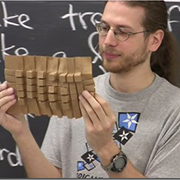
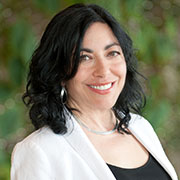
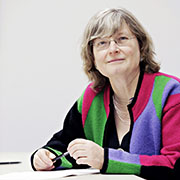
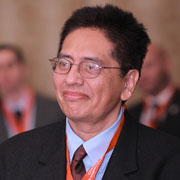
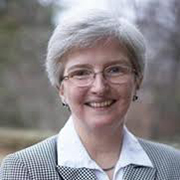
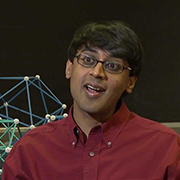
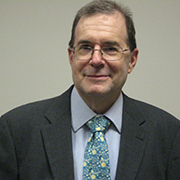
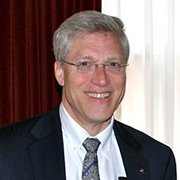
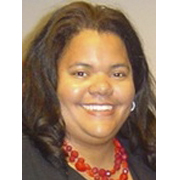
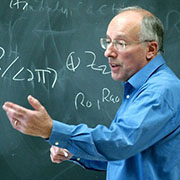
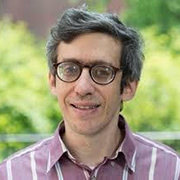
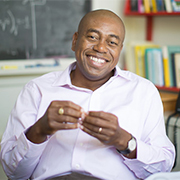
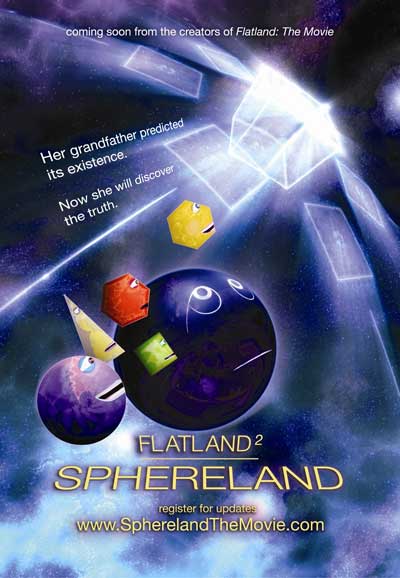 Join writer/director Dano Johnson, producer Seth Caplan, and mathematical advisor Thomas Banchoff for this sneak peek into the mathematics of making the new animated film featuring the voices of Kristen Bell, Michael York and Danica McKellar. More information and trailer of the film can be found at
Join writer/director Dano Johnson, producer Seth Caplan, and mathematical advisor Thomas Banchoff for this sneak peek into the mathematics of making the new animated film featuring the voices of Kristen Bell, Michael York and Danica McKellar. More information and trailer of the film can be found at In the Footsteps of Newton
In the Footsteps of Newton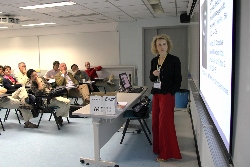
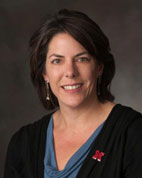
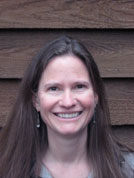
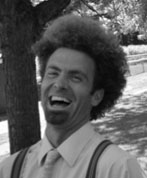
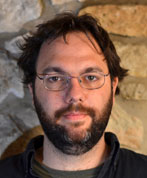 Financial mathematics is a relatively recent addition to the spectrum of mathematical disciplines. Like many other mathematical specialties, it aims to provide a rigorous analysis and an abstract reductionist view of a circle of ideas, intuitions, models, observations and beliefs related to a specific “facet of reality”. In the case of financial mathematics, the focus is on the structure and dynamics of financial markets and the role played by financial agents acting in them. It builds on fundamental ideas of financial economics, but goes beyond the toy models and does not shy away from embracing the powerful analytical tools contemporary mathematics has to offer. A major attraction of the subject is the breadth of the array of such tools that can be effectively used; they range from classical analysis, partial differential equations and their numerical counterparts over the Banach-space theory and non-locally-convex functional analysis through convex analysis and optimization to probability theory and stochastic analysis. Another — in a sense dual — source of appeal of financial mathematics is the degree of enrichment these purely mathematical fields have gained from the relationship. Indeed, problems first encountered in analysis of financial problems led to many mathematical developments in a variety of disciplines. The talk will focus on an assortment of problems illustrating the above mutually beneficial interactions and provide a glimpse of contemporary frontiers of research in this exciting field. It is meant to be accessible to a mathematically mature audience, but no previous exposure to the subject is required.
Financial mathematics is a relatively recent addition to the spectrum of mathematical disciplines. Like many other mathematical specialties, it aims to provide a rigorous analysis and an abstract reductionist view of a circle of ideas, intuitions, models, observations and beliefs related to a specific “facet of reality”. In the case of financial mathematics, the focus is on the structure and dynamics of financial markets and the role played by financial agents acting in them. It builds on fundamental ideas of financial economics, but goes beyond the toy models and does not shy away from embracing the powerful analytical tools contemporary mathematics has to offer. A major attraction of the subject is the breadth of the array of such tools that can be effectively used; they range from classical analysis, partial differential equations and their numerical counterparts over the Banach-space theory and non-locally-convex functional analysis through convex analysis and optimization to probability theory and stochastic analysis. Another — in a sense dual — source of appeal of financial mathematics is the degree of enrichment these purely mathematical fields have gained from the relationship. Indeed, problems first encountered in analysis of financial problems led to many mathematical developments in a variety of disciplines. The talk will focus on an assortment of problems illustrating the above mutually beneficial interactions and provide a glimpse of contemporary frontiers of research in this exciting field. It is meant to be accessible to a mathematically mature audience, but no previous exposure to the subject is required.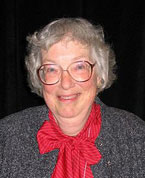
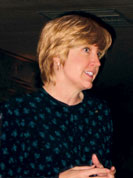
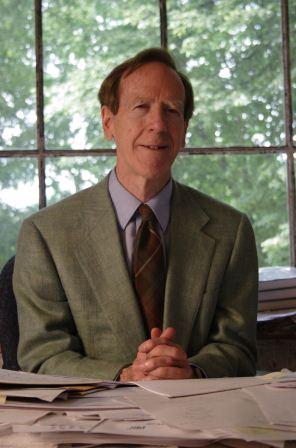
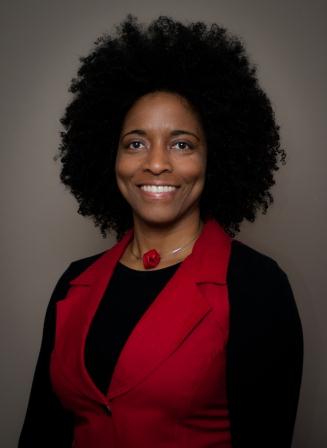
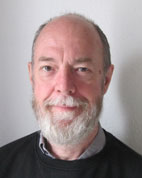
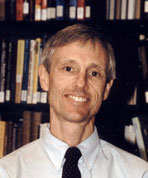
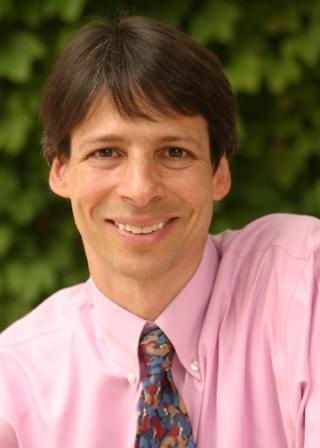
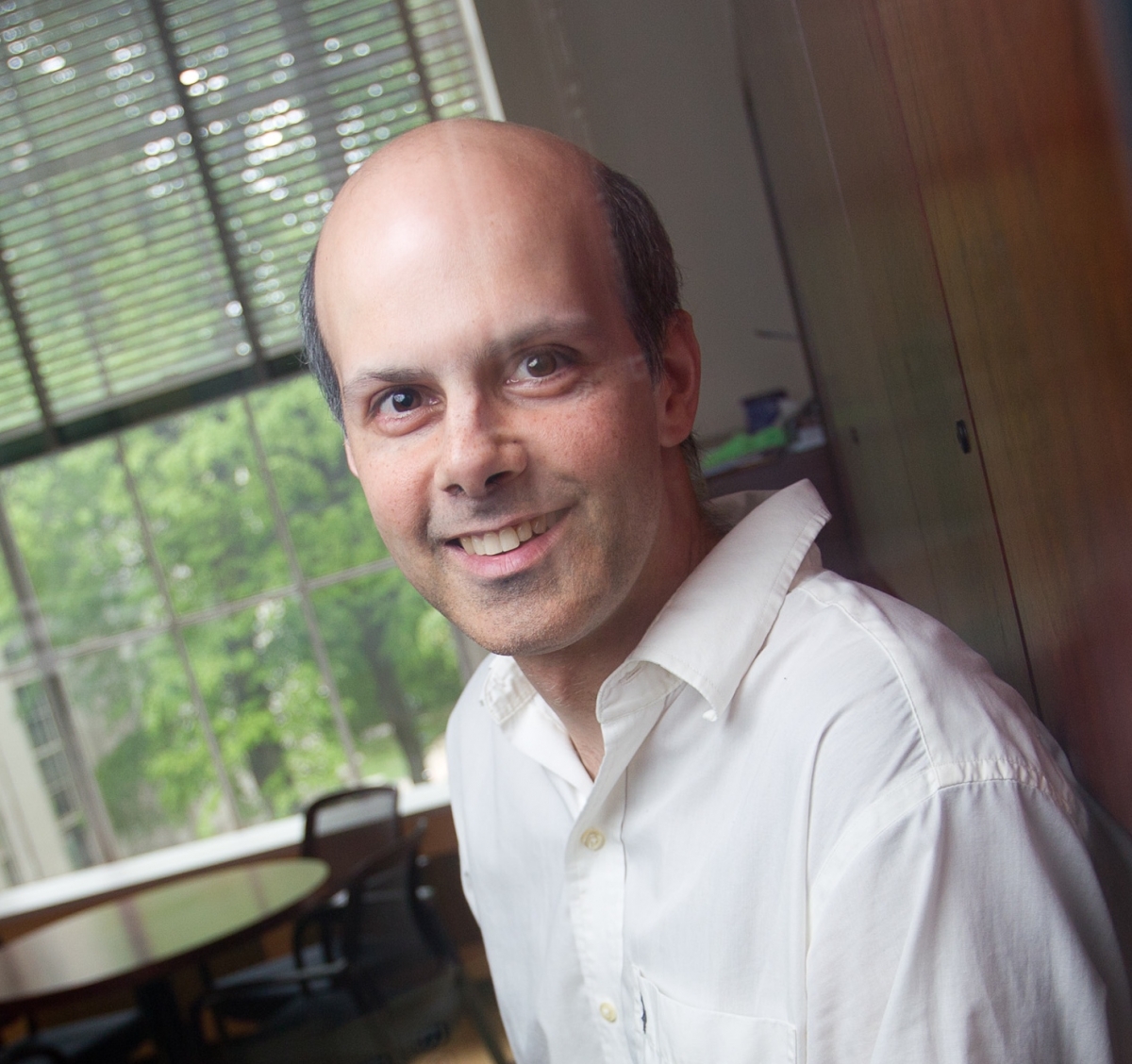 Undecidability in Number Theory
Undecidability in Number Theory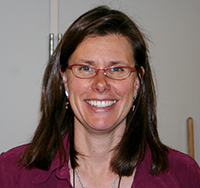 In this talk, we will introduce some of the history of computer assisted proofs, modern applications, and how you can incorporate this technique into your every day life. Beyond the famous 4-Color Theorem, computer assisted proofs are found in hypergeometric series, geometry of Kepler’s conjecture, and algebraic geometry related to Schubert varieties. Each new computer assisted proof adds to our collective repertoire with this relatively new technique. We will talk about some specific easy problems that can be verified by computer and some results in the literature for which no human only proof is known. We will address the important question “What does a computer proof add to our mathematical intuition?” We also will give several suggestions for where computer assisted proofs can be added in the undergraduate curriculum. In the long run, we speculate that computer assisted proofs will be taught right along side the techniques of induction and proof by contradiction.
In this talk, we will introduce some of the history of computer assisted proofs, modern applications, and how you can incorporate this technique into your every day life. Beyond the famous 4-Color Theorem, computer assisted proofs are found in hypergeometric series, geometry of Kepler’s conjecture, and algebraic geometry related to Schubert varieties. Each new computer assisted proof adds to our collective repertoire with this relatively new technique. We will talk about some specific easy problems that can be verified by computer and some results in the literature for which no human only proof is known. We will address the important question “What does a computer proof add to our mathematical intuition?” We also will give several suggestions for where computer assisted proofs can be added in the undergraduate curriculum. In the long run, we speculate that computer assisted proofs will be taught right along side the techniques of induction and proof by contradiction.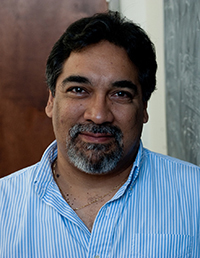 Biological fluid flows, like those surrounding moving bacteria and spermatozoa, are generated by viscous forces, which completely dominate inertial effects, so that their dynamics may be modeled as a sequence of steady-state snapshots. Microorganism motility has been an active area of research for the last 60 years motivated by questions like: What are effective locomotion strategies of microorganisms? How do they interact with the surrounding environment? How do microorganisms combine to create patterns of collective motion? What force-generating mechanisms do the organisms use to propel themselves? The only way to answer these questions is through a combination of theory, experiments, mathematical modeling and simulation. We will present recent collaborative mathematical work, some of it done with undergraduate students, that sheds light on these biological systems and challenges ahead.
Biological fluid flows, like those surrounding moving bacteria and spermatozoa, are generated by viscous forces, which completely dominate inertial effects, so that their dynamics may be modeled as a sequence of steady-state snapshots. Microorganism motility has been an active area of research for the last 60 years motivated by questions like: What are effective locomotion strategies of microorganisms? How do they interact with the surrounding environment? How do microorganisms combine to create patterns of collective motion? What force-generating mechanisms do the organisms use to propel themselves? The only way to answer these questions is through a combination of theory, experiments, mathematical modeling and simulation. We will present recent collaborative mathematical work, some of it done with undergraduate students, that sheds light on these biological systems and challenges ahead.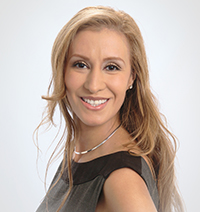 Mathematical modeling has been used to study diverse biological topics ranging from protein folding to cell interactions to interacting populations of humans but has only recently been used to study the physiology of the eye. In recent years, computer (in silico) experiments have given researchers invaluable insights and in some cases have re-directed experimental research and theory. In this talk I will give a brief overview of the relevant physiology of the eye as it pertains to Retinitis pigmentosa (RP), a group of inherited degenerative eye diseases that characterized by the premature death of both rod and cone photoreceptors often resulting in total blindness. With mathematics and in silico experiments, we explore the experimentally observed results highlighting the delicate balance between the availability of nutrients and the rates of shedding and renewal of photoreceptors needed for a normal functioning retina. This work provides a framework for future physiological investigations potentially leading to long-term targeted multi-faceted interventions and therapies dependent on the particular stage and subtype of RP under consideration. The mathematics presented will be accessible to an undergraduate math audience and the biology will be at the level of a novice (and with a little help from Dr. Seuss).
Mathematical modeling has been used to study diverse biological topics ranging from protein folding to cell interactions to interacting populations of humans but has only recently been used to study the physiology of the eye. In recent years, computer (in silico) experiments have given researchers invaluable insights and in some cases have re-directed experimental research and theory. In this talk I will give a brief overview of the relevant physiology of the eye as it pertains to Retinitis pigmentosa (RP), a group of inherited degenerative eye diseases that characterized by the premature death of both rod and cone photoreceptors often resulting in total blindness. With mathematics and in silico experiments, we explore the experimentally observed results highlighting the delicate balance between the availability of nutrients and the rates of shedding and renewal of photoreceptors needed for a normal functioning retina. This work provides a framework for future physiological investigations potentially leading to long-term targeted multi-faceted interventions and therapies dependent on the particular stage and subtype of RP under consideration. The mathematics presented will be accessible to an undergraduate math audience and the biology will be at the level of a novice (and with a little help from Dr. Seuss).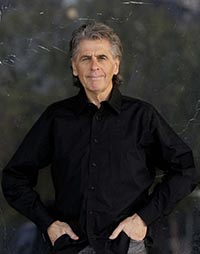 The design of a good interface to an activity can have a significant impact on learning and use. The piano provides a more intuitive and direct interface to music than symbolic musical notation, the Hindu-Arabic numerals revolutionized arithmetic (and with it, trade and commerce), and symbolic algebraic notation was so successful that most people today think the interface is algebra, rather than the mathematical processes the notation represents. Devlin has spent the past several years developing casual games that provide representations of mathematics that enable children (and adults) to learn basic mathematics by “playing”, the same way we can learn music by learning to play the piano.
The design of a good interface to an activity can have a significant impact on learning and use. The piano provides a more intuitive and direct interface to music than symbolic musical notation, the Hindu-Arabic numerals revolutionized arithmetic (and with it, trade and commerce), and symbolic algebraic notation was so successful that most people today think the interface is algebra, rather than the mathematical processes the notation represents. Devlin has spent the past several years developing casual games that provide representations of mathematics that enable children (and adults) to learn basic mathematics by “playing”, the same way we can learn music by learning to play the piano.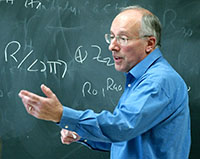 Although involving undergraduates in research has been a long standing practice in the experimental sciences, it has only been recently that undergraduates have been involved in research in mathematics in significant numbers. In this talk I will trace the evolution of research by undergraduates over the past 25 years and the reasons for it. I will give my opinion on what lies ahead over the next ten years.
Although involving undergraduates in research has been a long standing practice in the experimental sciences, it has only been recently that undergraduates have been involved in research in mathematics in significant numbers. In this talk I will trace the evolution of research by undergraduates over the past 25 years and the reasons for it. I will give my opinion on what lies ahead over the next ten years.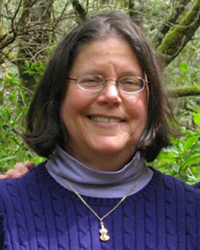 As students of algebra we quickly learn that for the purpose of solving polynomial equations the field of rational numbers is inadequate. We soon become acquainted with algebraic extensions of the rationals and later in our studies meet the fields of algebraic numbers, real numbers, and complex numbers, the latter as the algebraic closure of the real field.
As students of algebra we quickly learn that for the purpose of solving polynomial equations the field of rational numbers is inadequate. We soon become acquainted with algebraic extensions of the rationals and later in our studies meet the fields of algebraic numbers, real numbers, and complex numbers, the latter as the algebraic closure of the real field.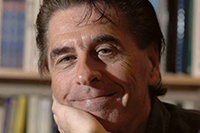 The first personal computing revolution took place not in Silicon Valley in the 1980s but in Pisa in the 13th Century. The medieval counterpart to Steve Jobs was a young Italian called Leonardo, better known today by the nickname Fibonacci. Thanks to a recently discovered manuscript in a library in Florence, the story of how this genius, about whom we know so little, came to launch the modern commercial world can now be told.
The first personal computing revolution took place not in Silicon Valley in the 1980s but in Pisa in the 13th Century. The medieval counterpart to Steve Jobs was a young Italian called Leonardo, better known today by the nickname Fibonacci. Thanks to a recently discovered manuscript in a library in Florence, the story of how this genius, about whom we know so little, came to launch the modern commercial world can now be told.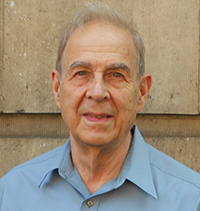

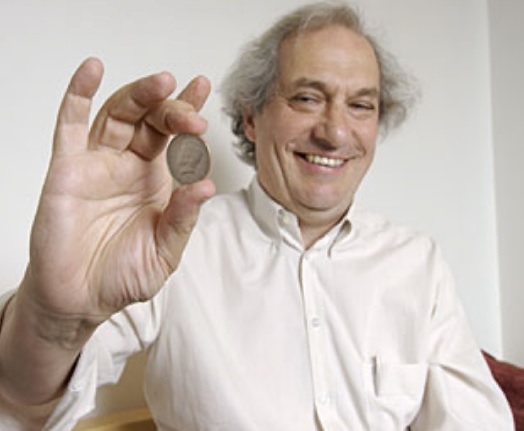
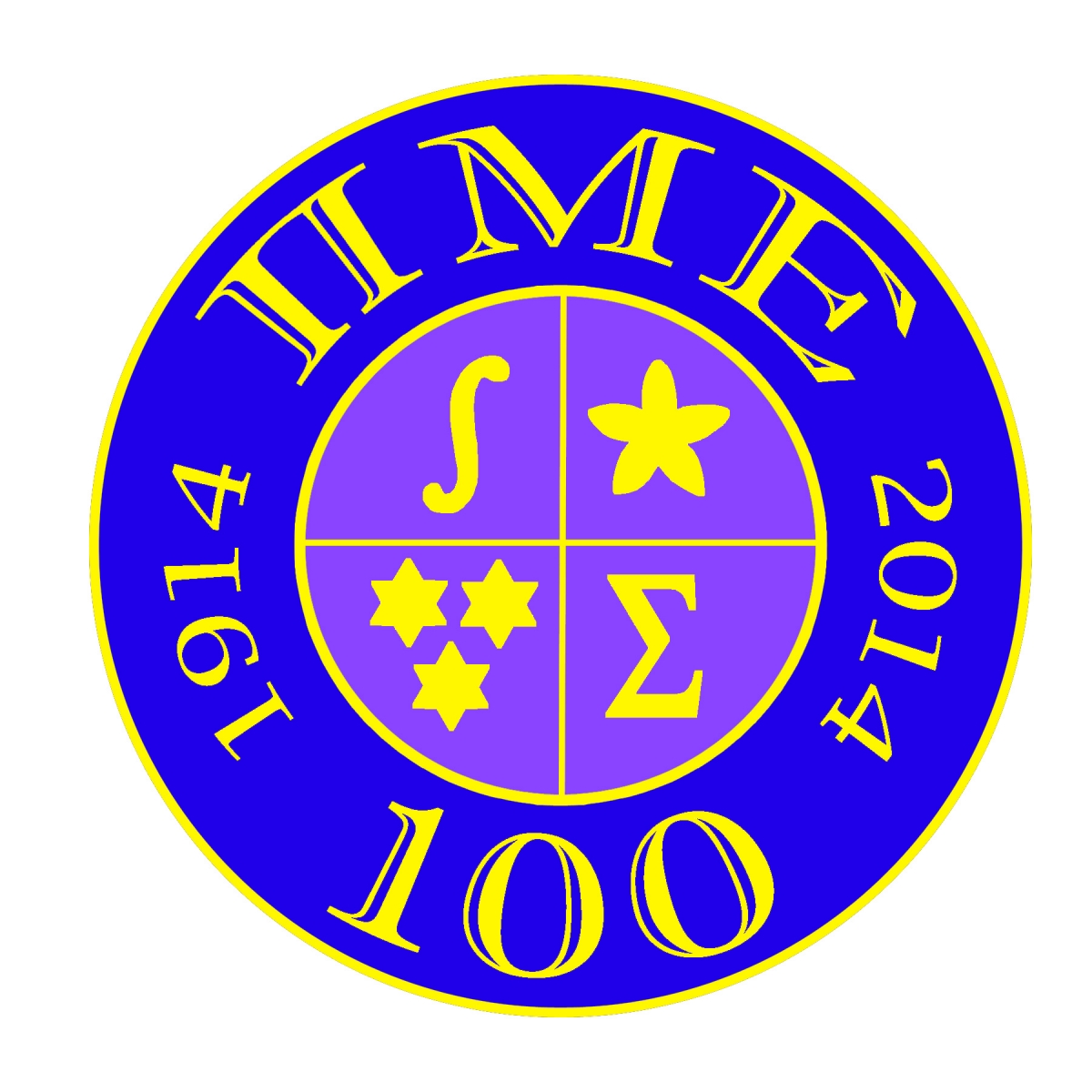 Pi Mu Epsilon Student Centennial Celebration Banquet
Pi Mu Epsilon Student Centennial Celebration Banquet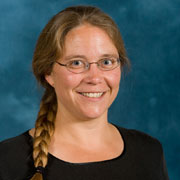

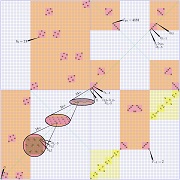



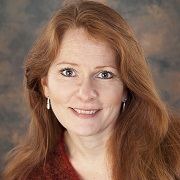
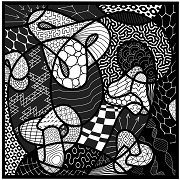 MAA Invited Address
MAA Invited Address